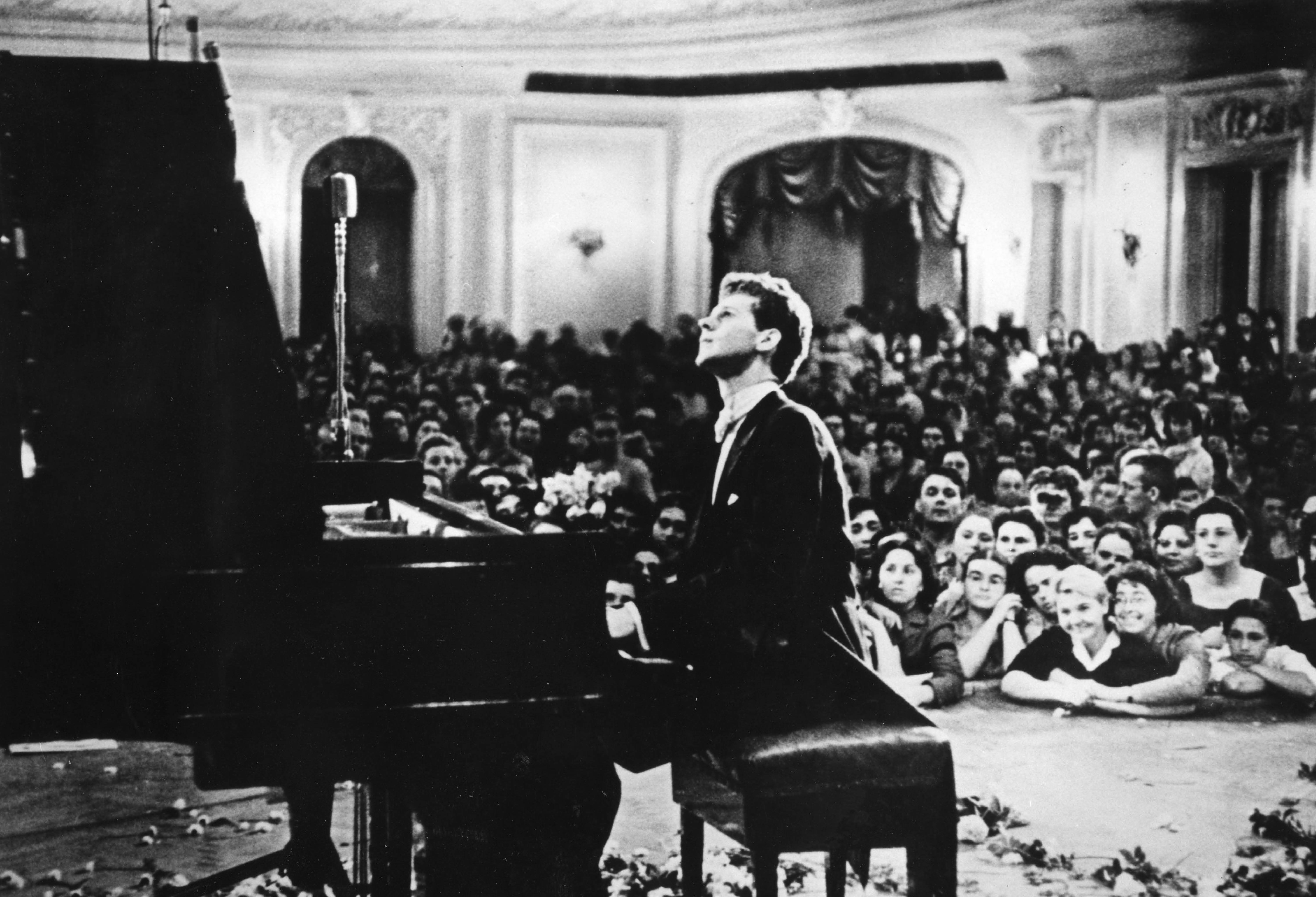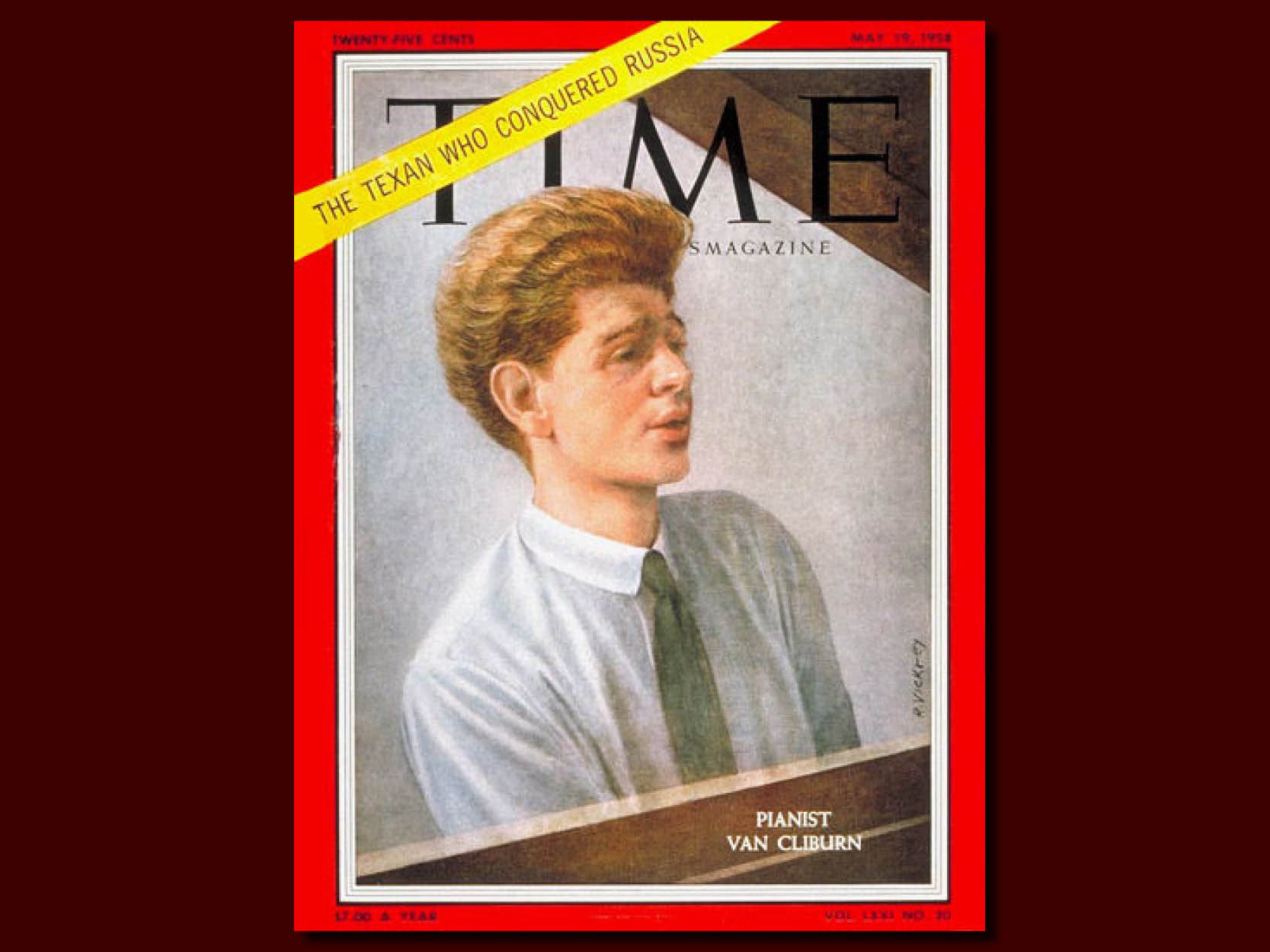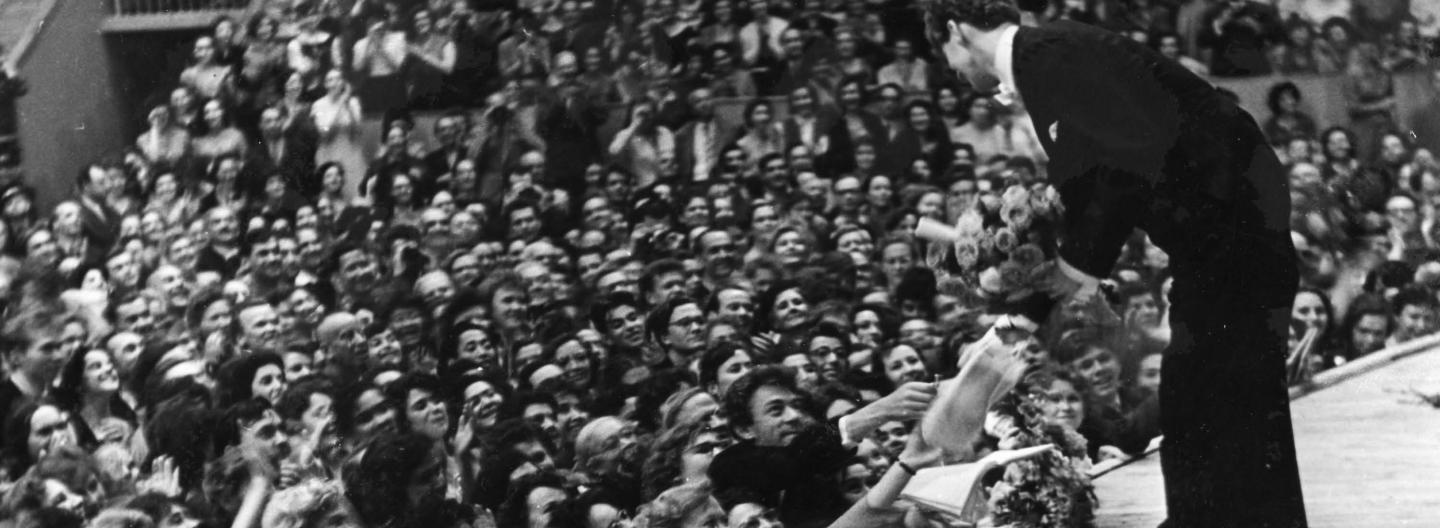Van Cliburn was an American hero and an international icon for over five decades. He was heralded by U.S. Presidents, world leaders, the international press, and a vast, adoring public as one of the most persuasive ambassadors of American culture, as well as one of the greatest pianists in the history of music. He was beloved not only for his momentous gift as a brilliant musician, but also for his transcendent spirit as a great humanitarian.
Since we know that classical music is timeless and everlasting, it is precisely the eternal verities inherent in classical music that remain a spiritual beacon for people all over the world.
– Van Cliburn
At the height of the Cold War in 1958, Van Cliburn—a 23-year-old Texan—won the first International Tchaikovsky Competition in Moscow, a contest designed to demonstrate Soviet cultural superiority on the heels of the country’s launch of Sputnik. When it was time to announce a winner, the judges asked permission of Soviet leader Nikita Khrushchev to give first prize to an American. “Is he the best?” Khrushchev asked. “Then give him the prize!” Cliburn returned home to a ticker-tape parade in New York City, the only time the honor has been bestowed on a musician.
The cover of Time magazine proclaimed him “The Texan Who Conquered Russia,” later saying that the “long-legged” pianist “had overnight become the object of the most explosive single outpouring of popular acclaim ever accorded a U.S. musician.” Instant fame begat a career that included many historical achievements: the first Grammy® for classical music; the first classical album to go triple platinum; record-breaking concert ticket sales at venues such as New York’s Carnegie Hall and Madison Square Garden, Chicago’s Grant Park, and Los Angeles’ Hollywood Bowl; and performances for every President of the United States from Harry Truman to Barack Obama, and royalty and heads of state from around the world.
Over the course of his lifetime, he was honored with a multitude of accolades, among them Kennedy Center Honors, the Grammy Lifetime Achievement Award, and the United States’ Presidential Medal of Freedom and National Medal of Arts. In 1962, a dedicated group of Fort Worth volunteers held the First Van Cliburn International Piano Competition in his honor; the competition is now widely recognized as one of the most prestigious in the world.

July 12, 1934 – February 27, 2013
Photo Gallery: Van Cliburn at the Competition
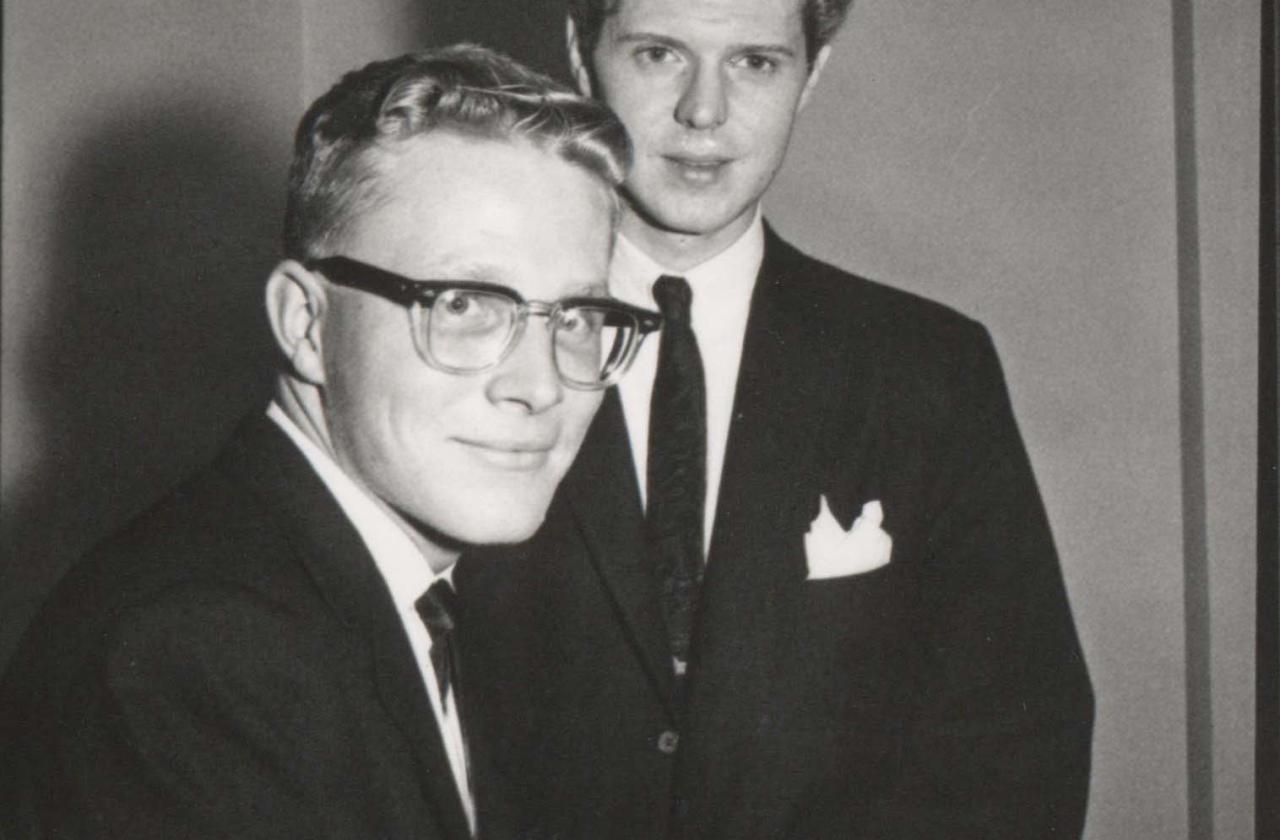
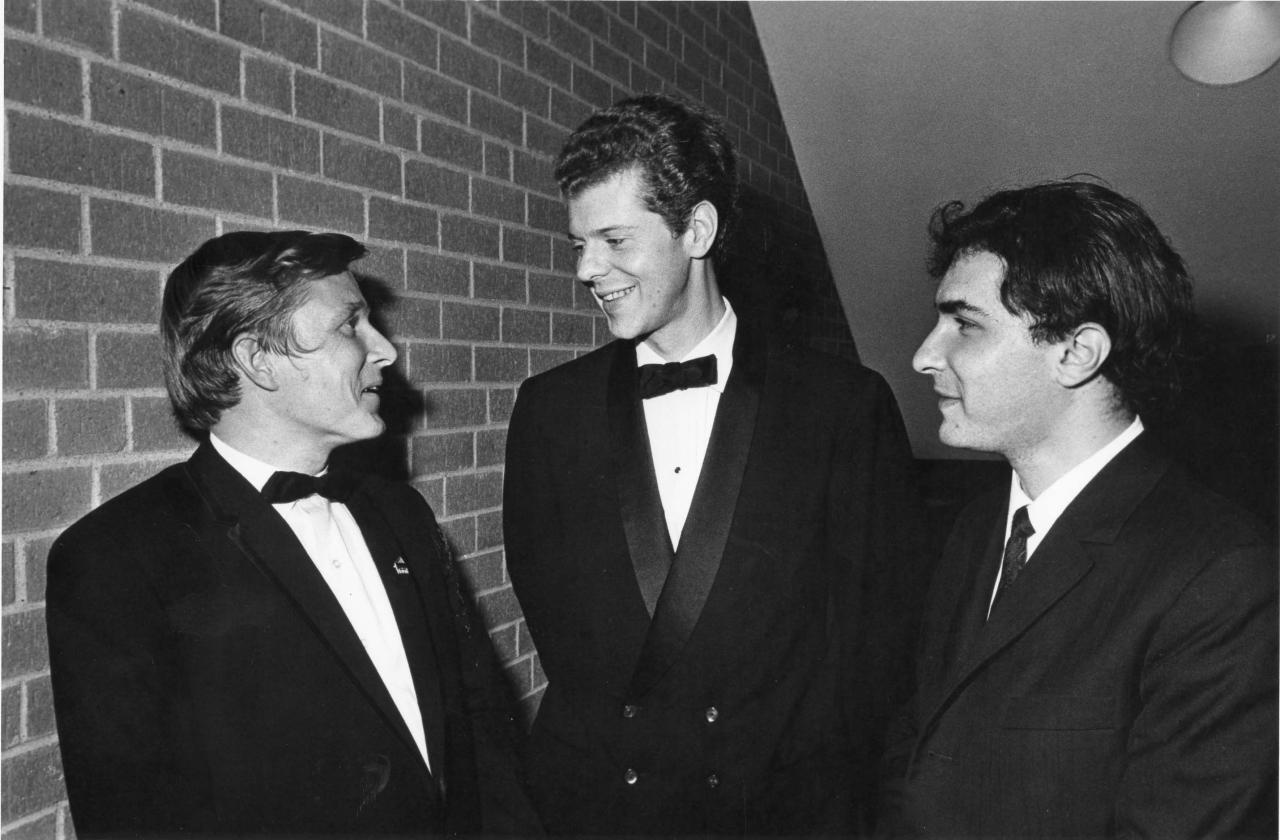
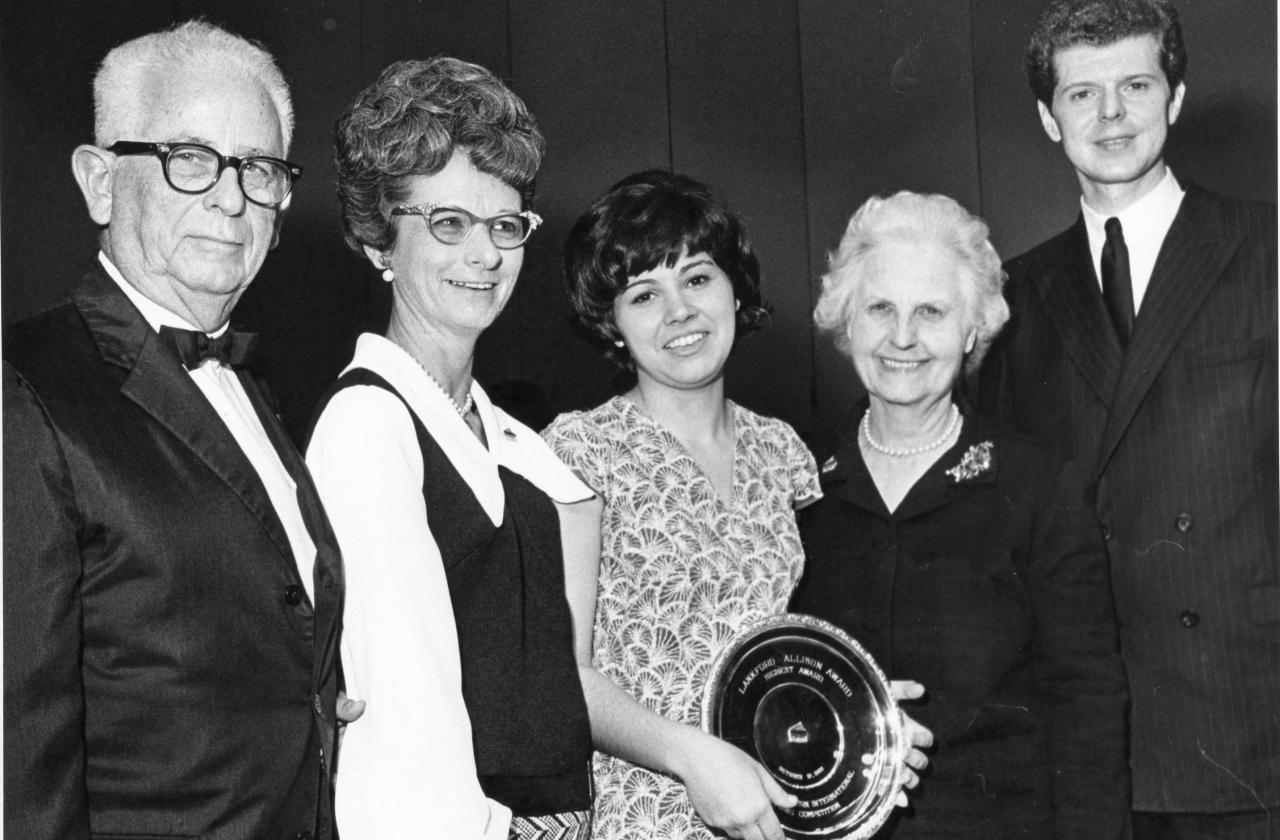
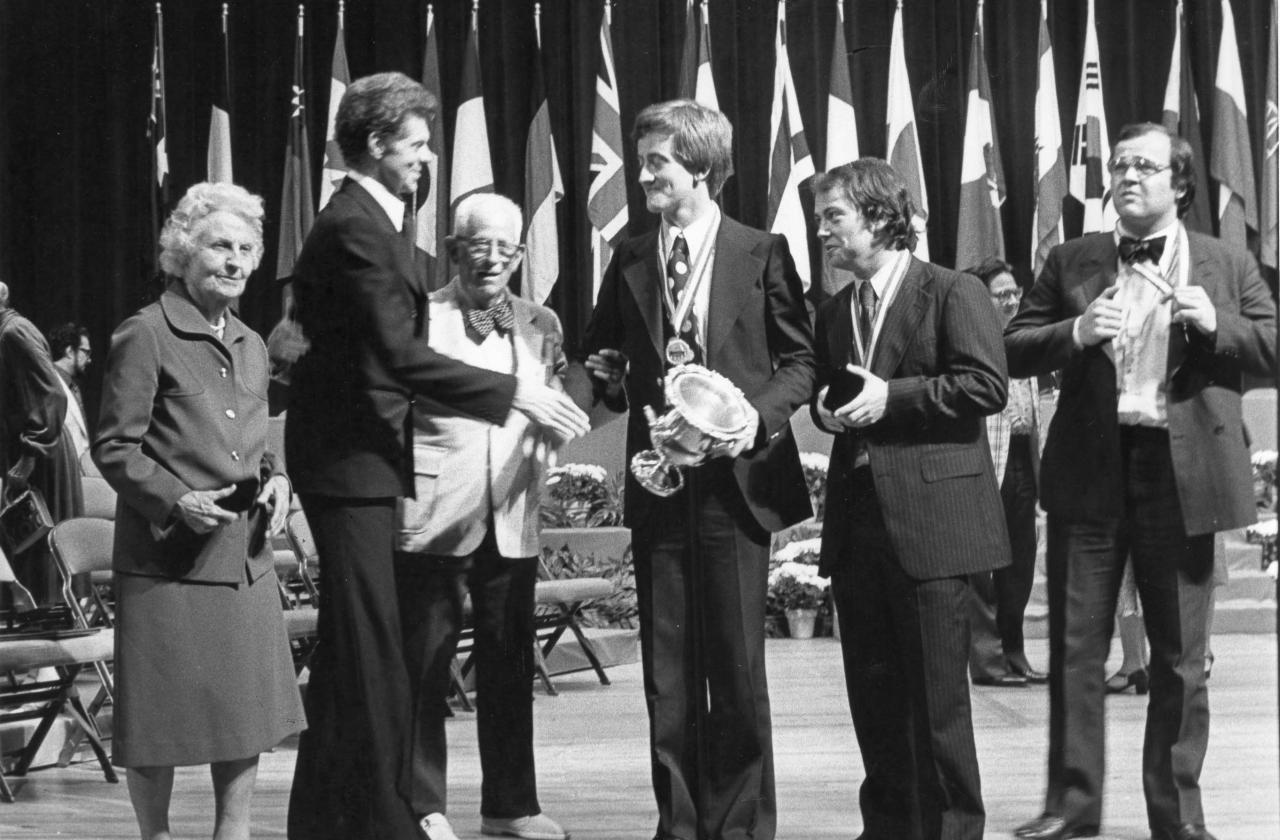
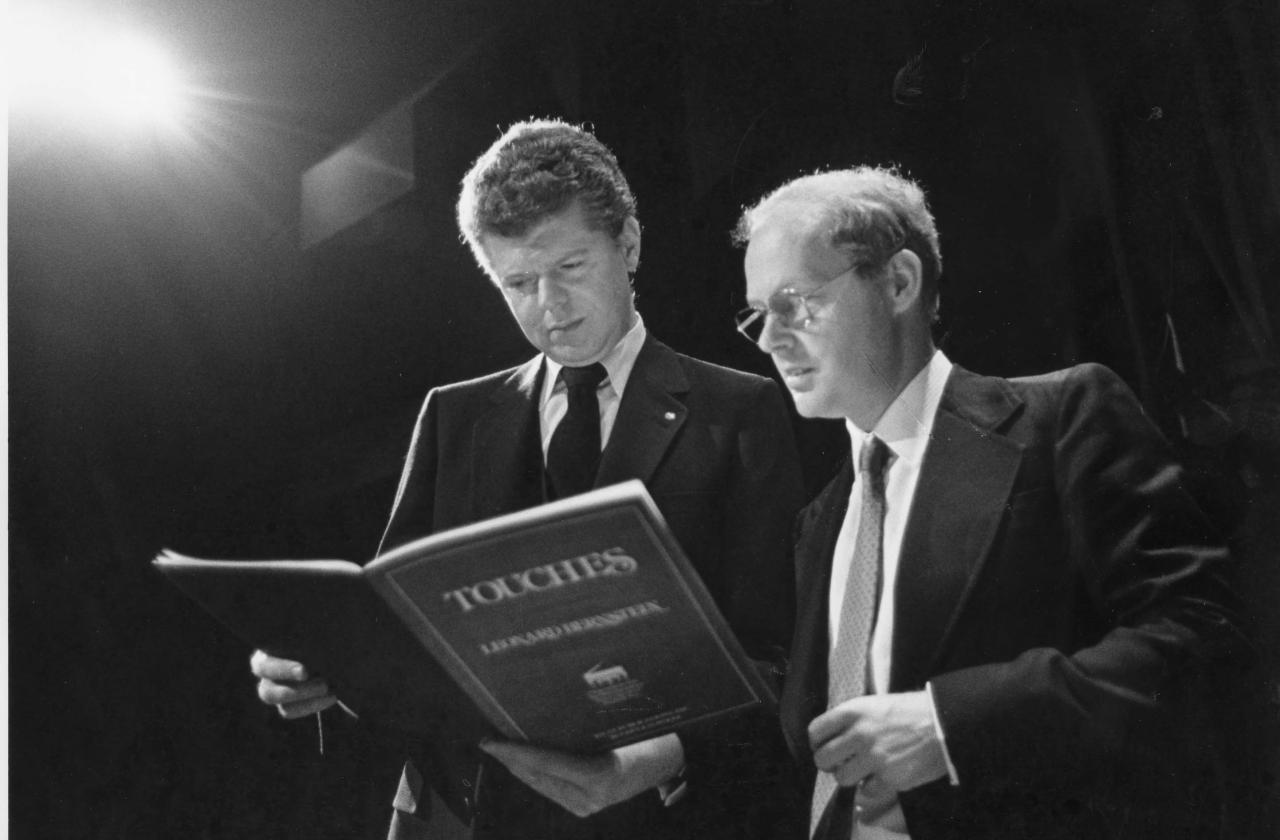
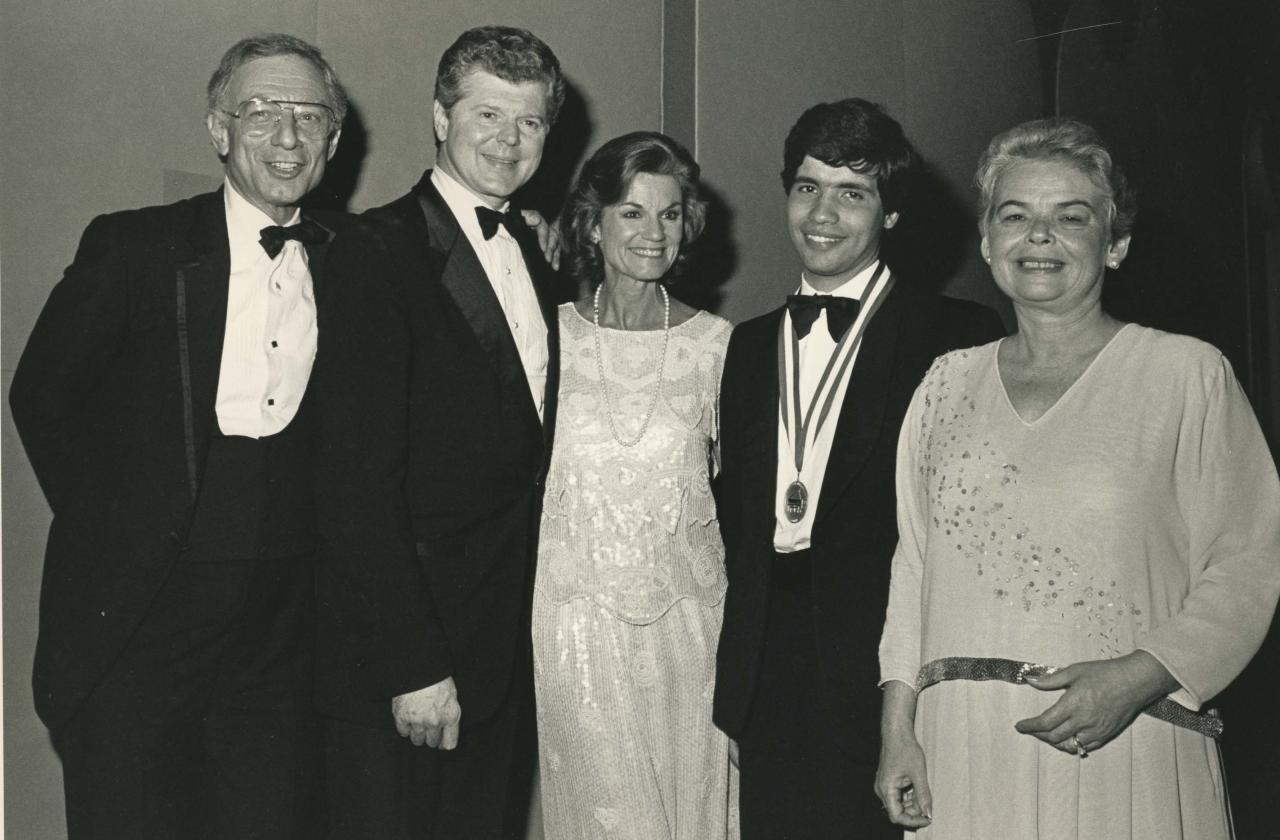
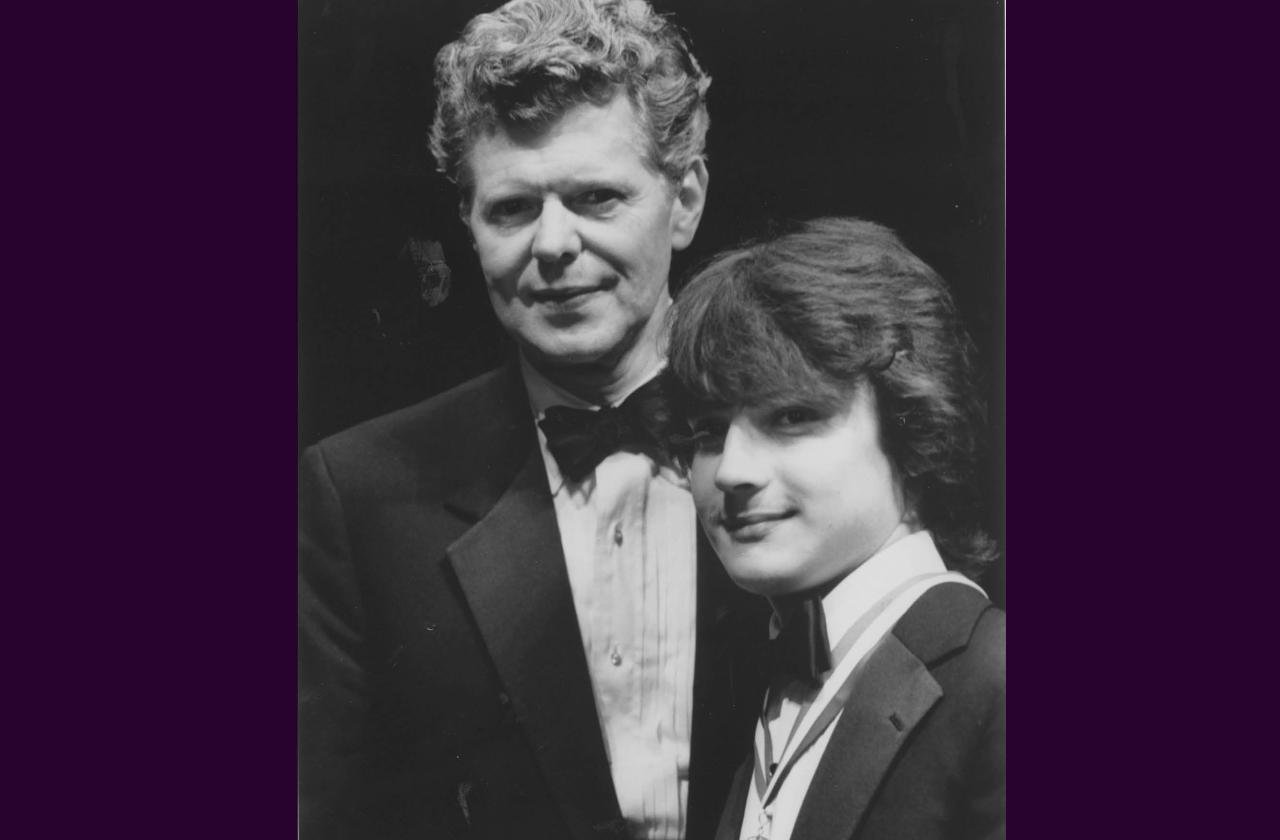
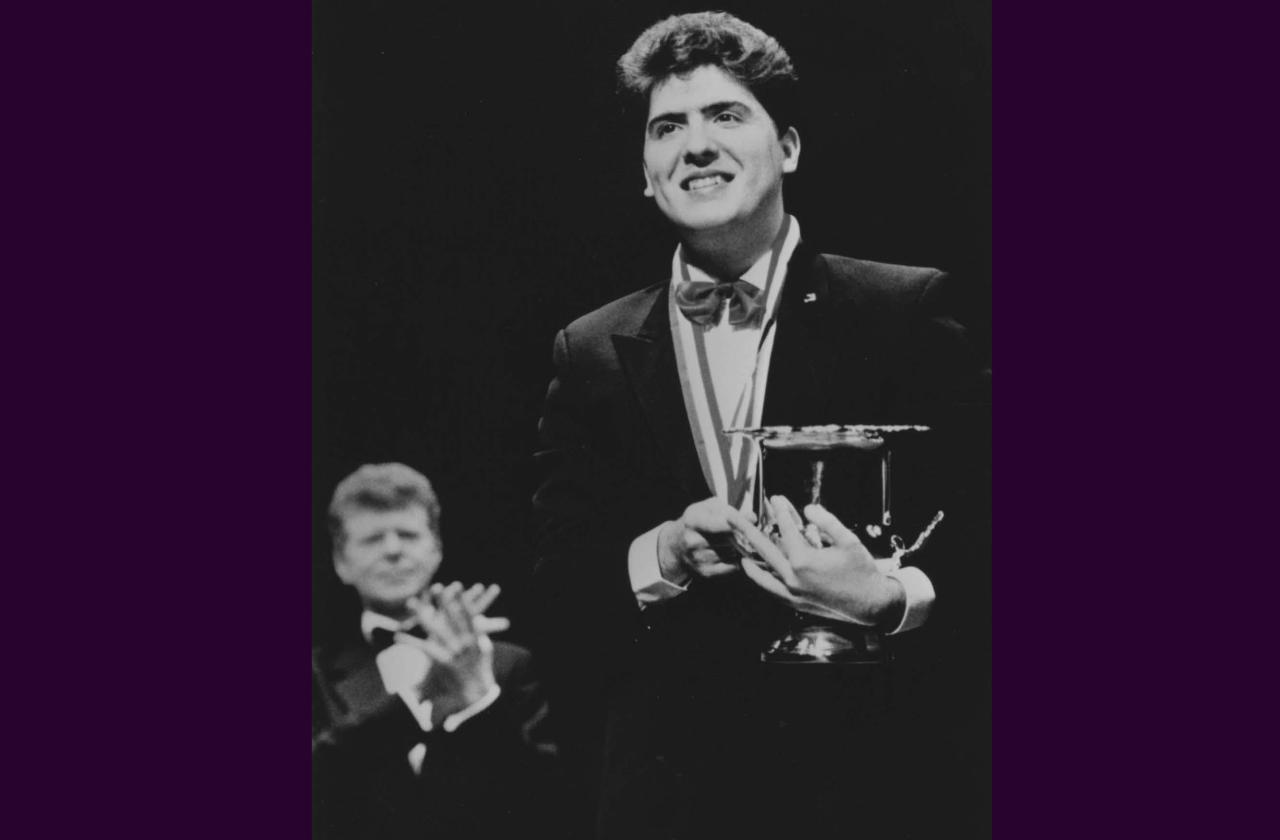
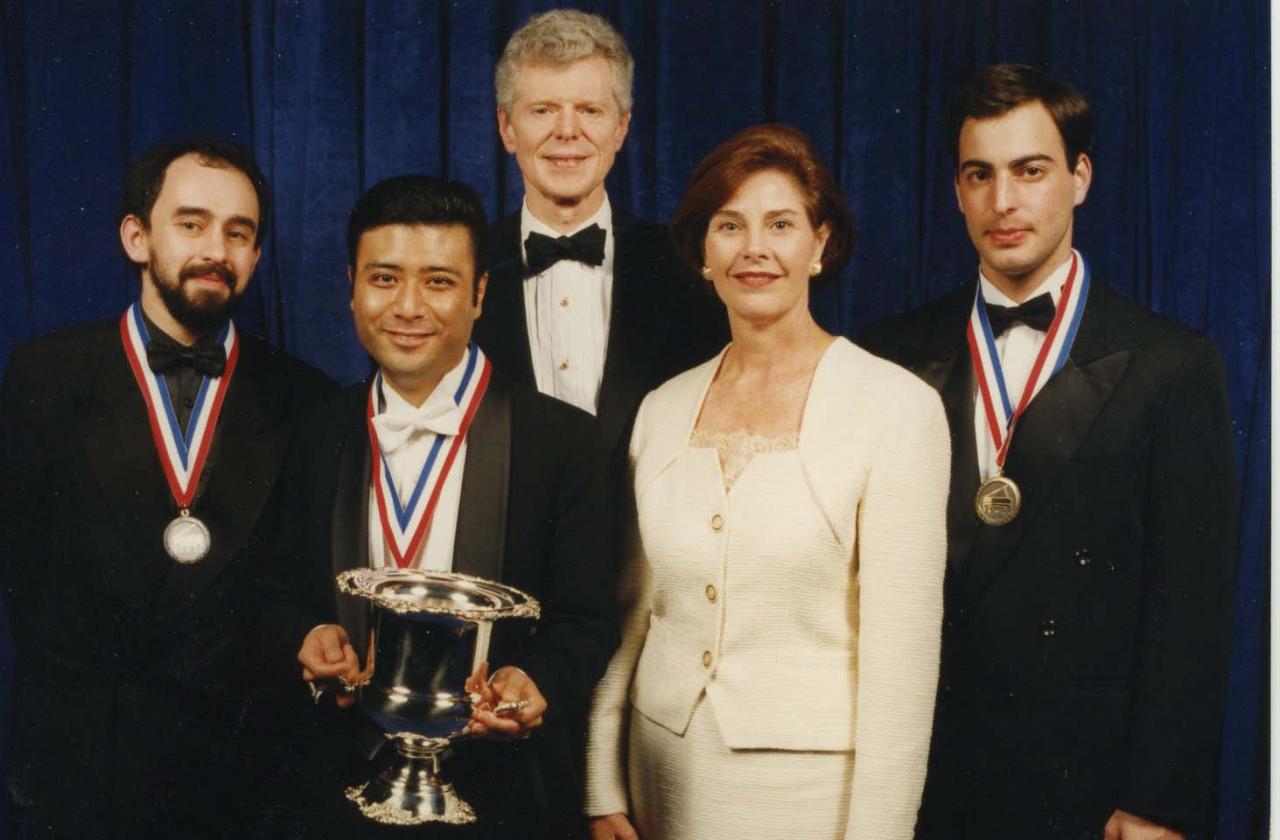
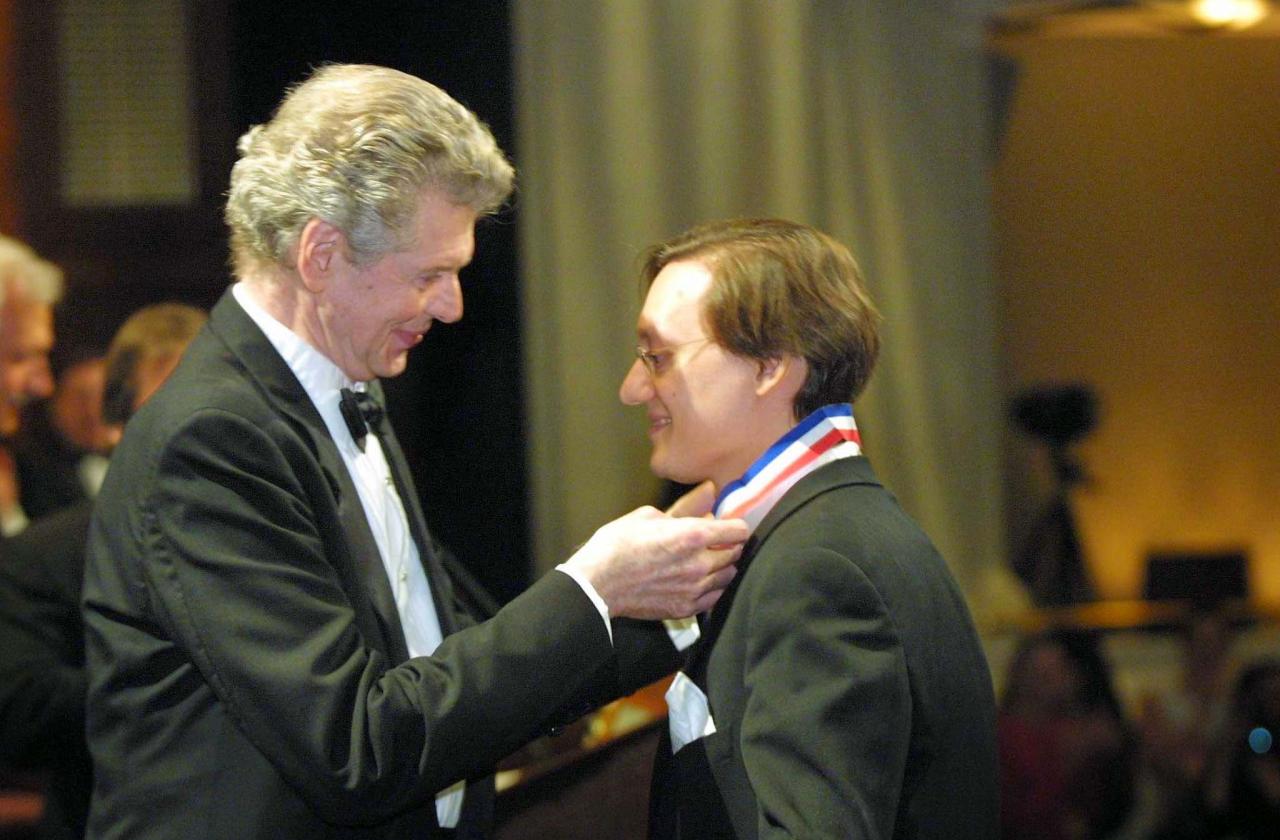
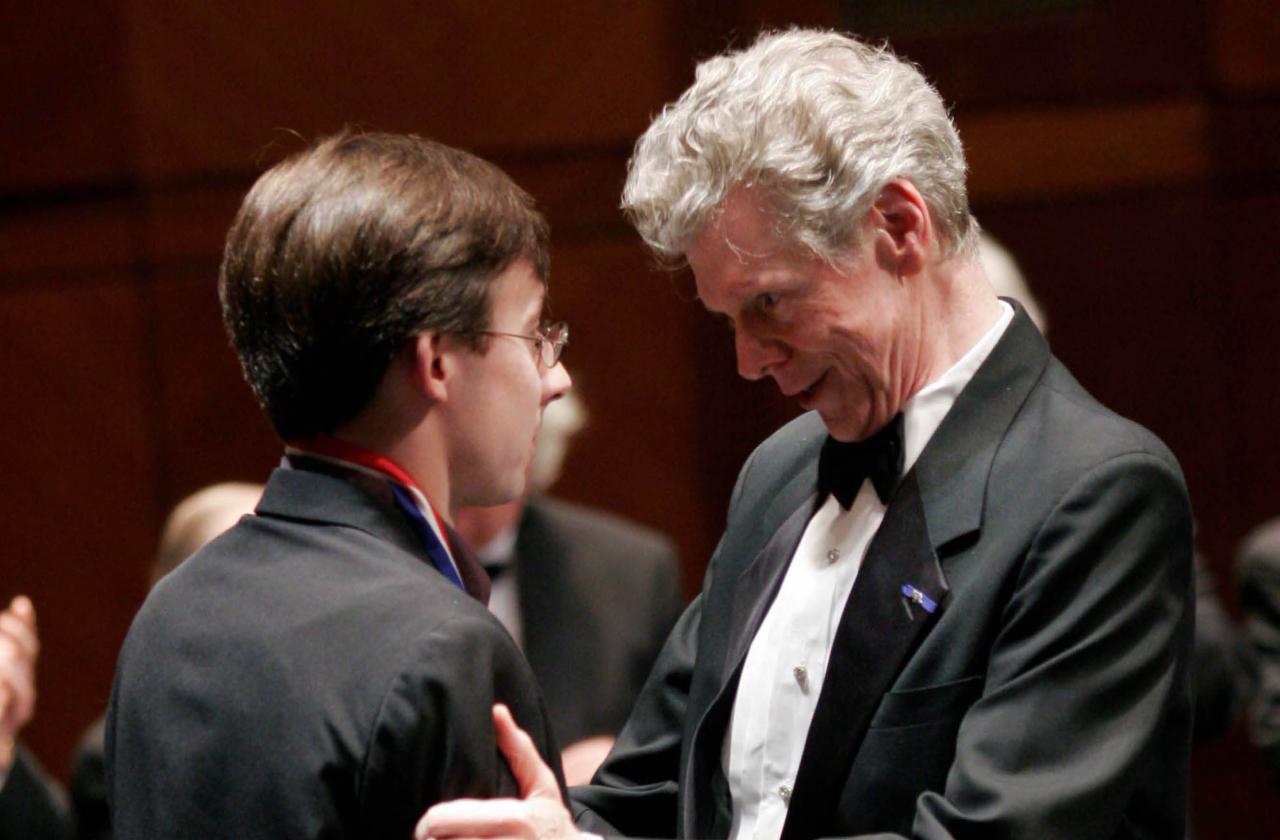
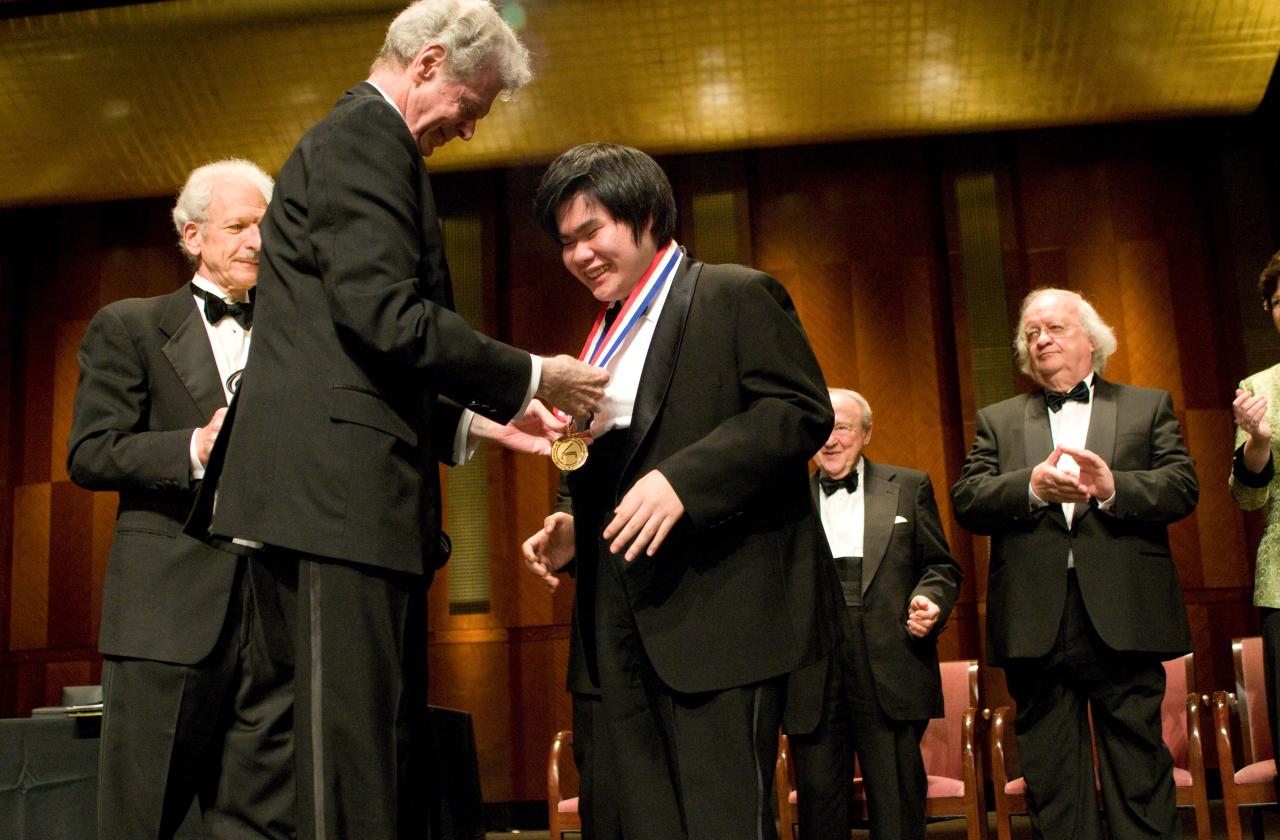
Photo Gallery: Van Cliburn with Presidents of the United States
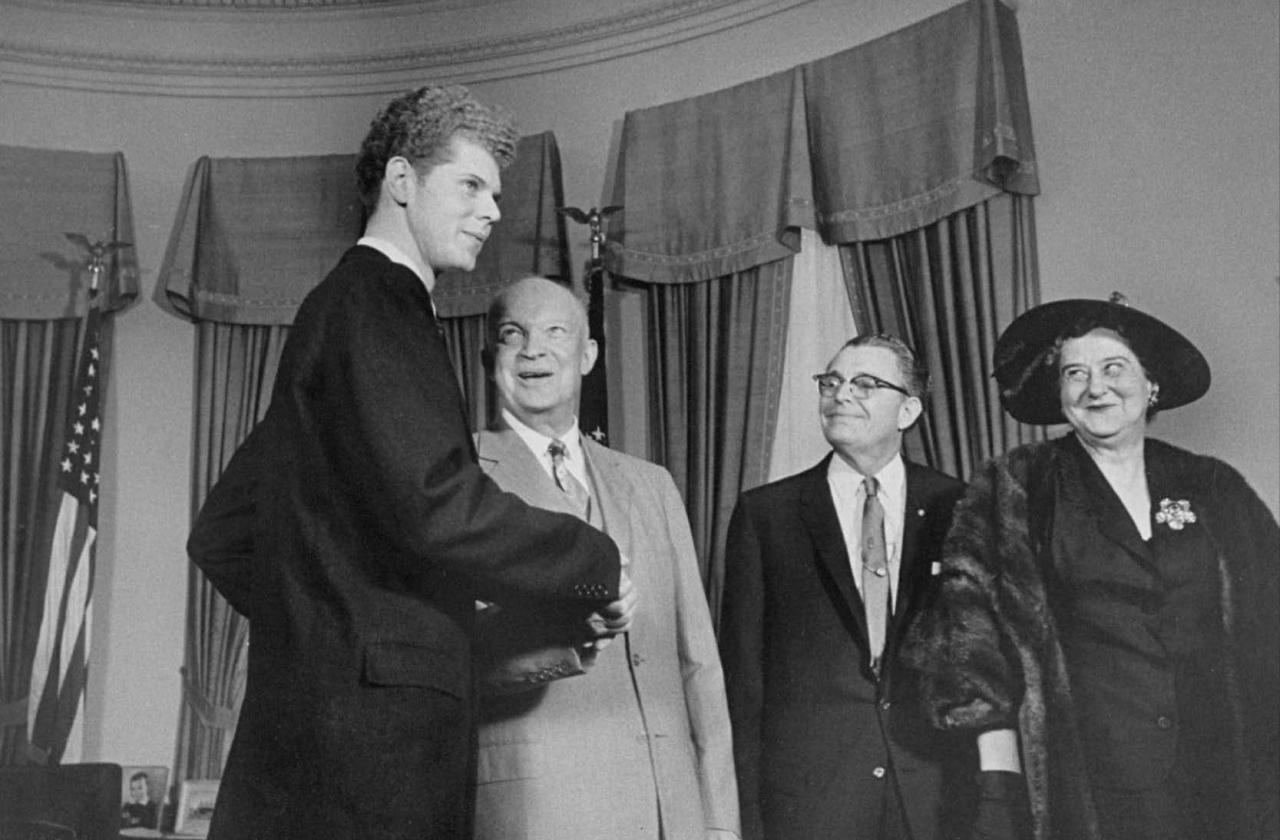
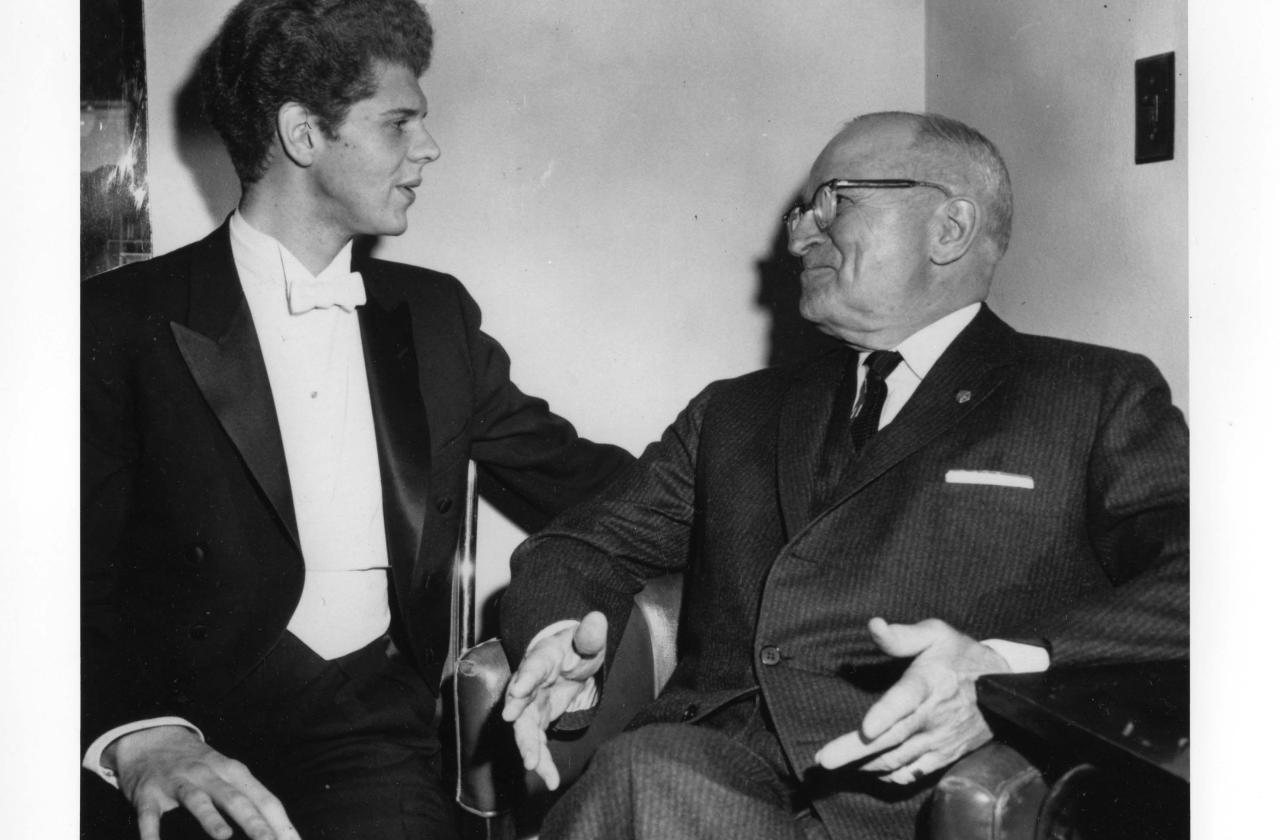
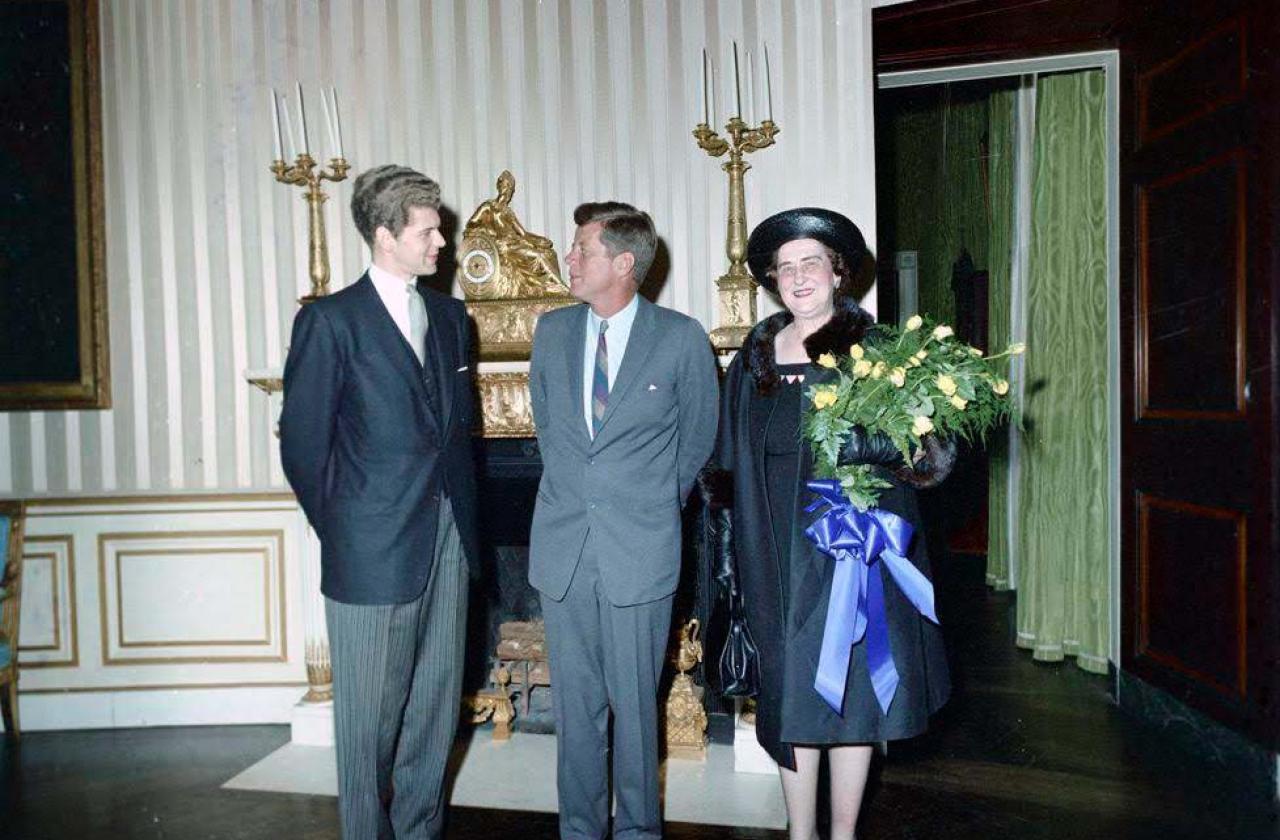
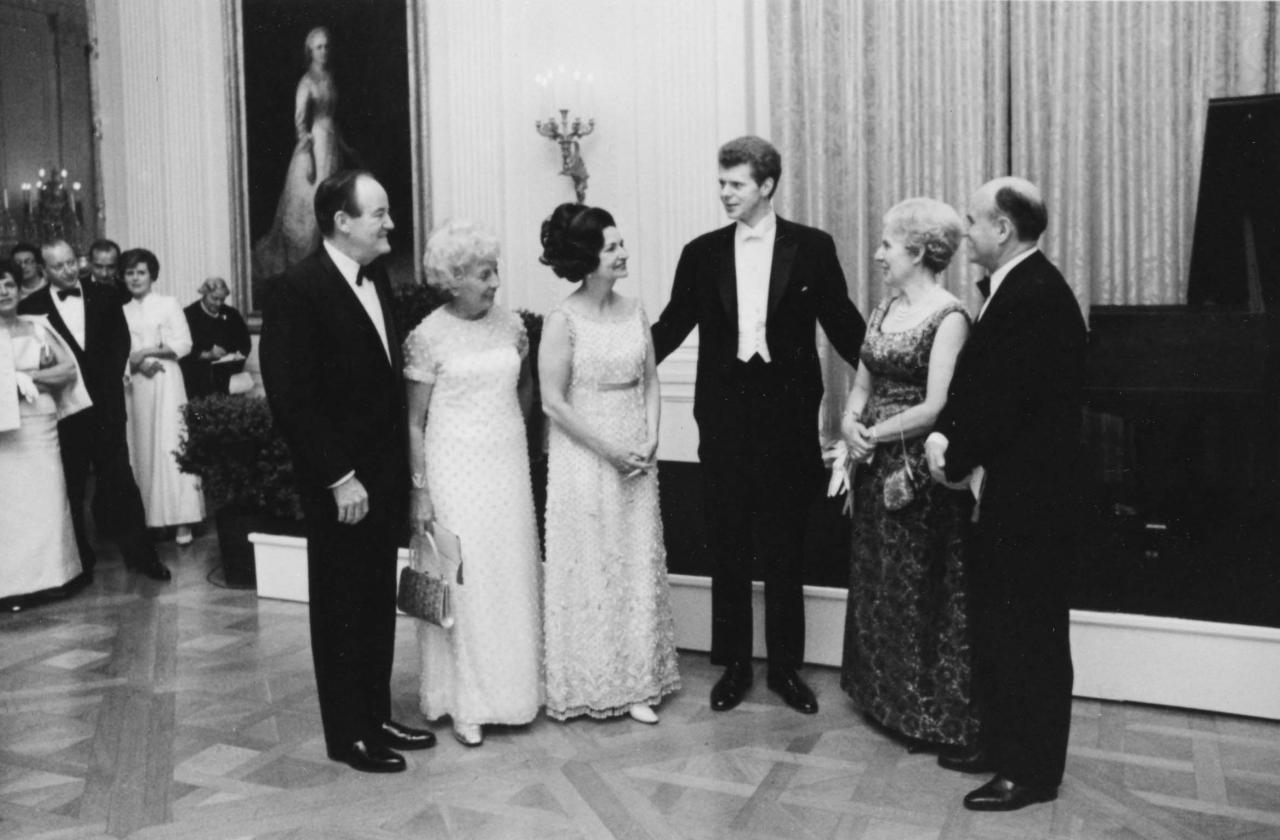
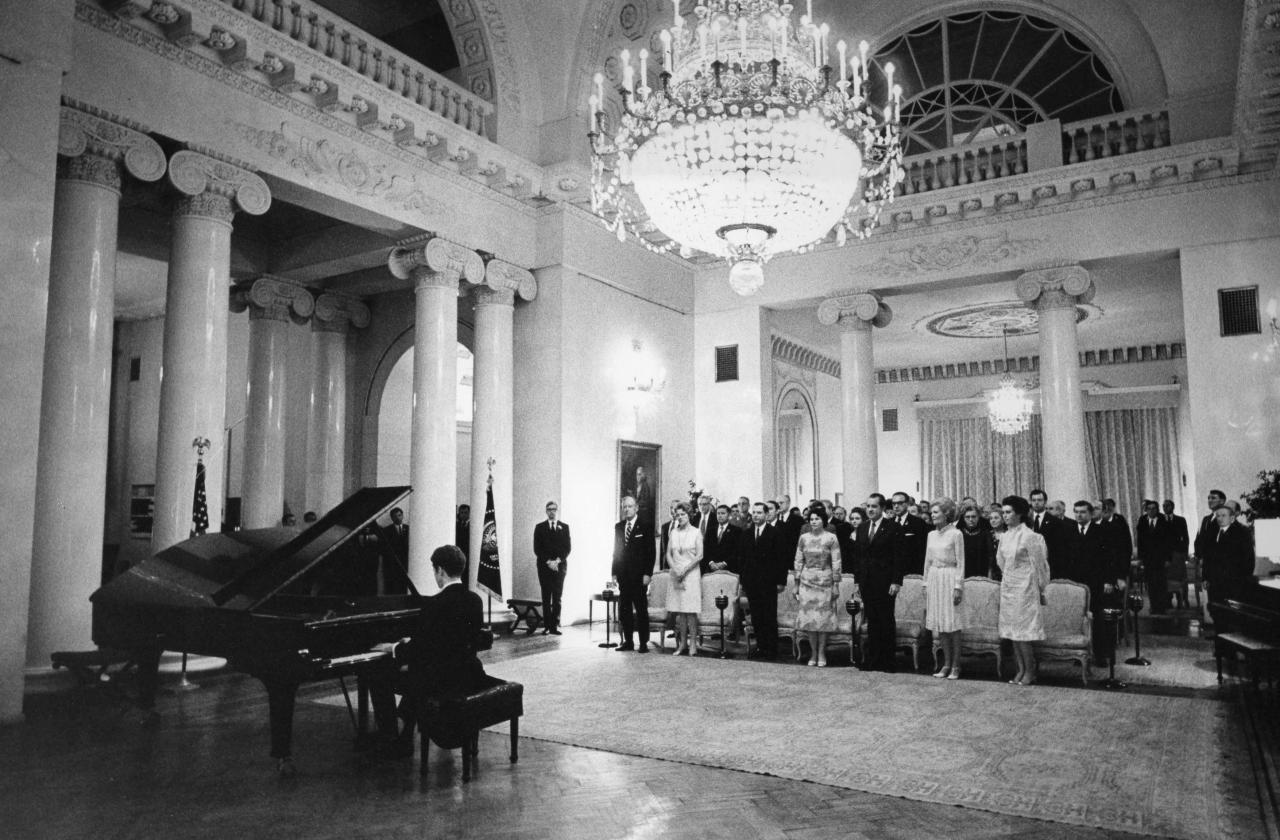
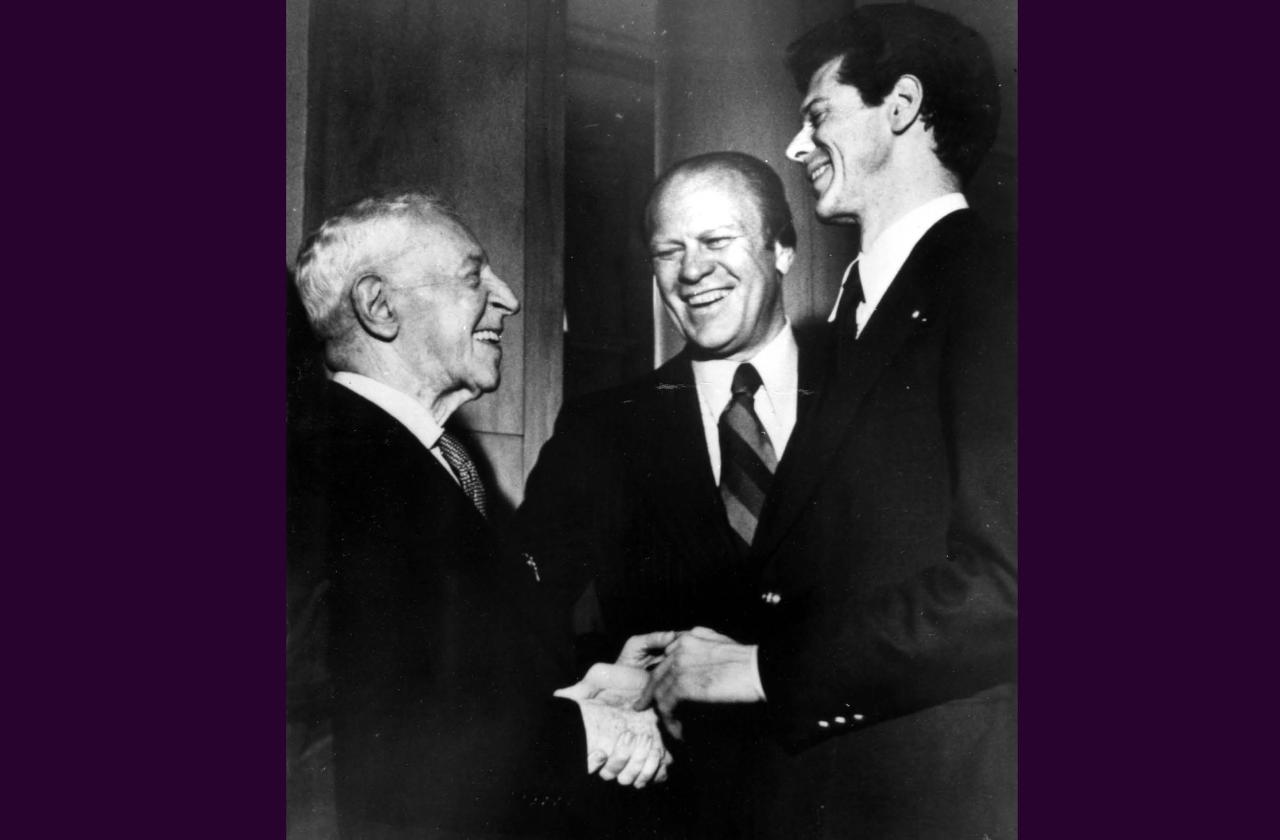
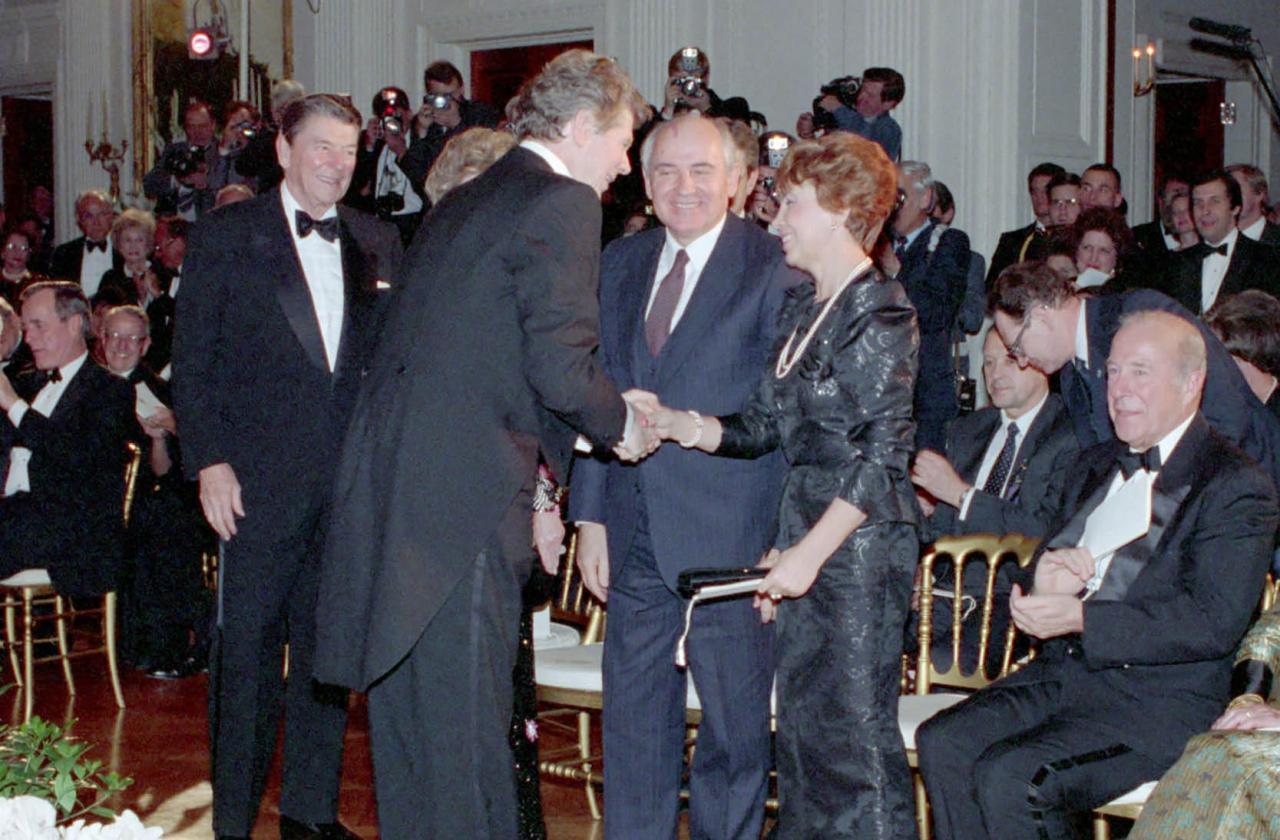
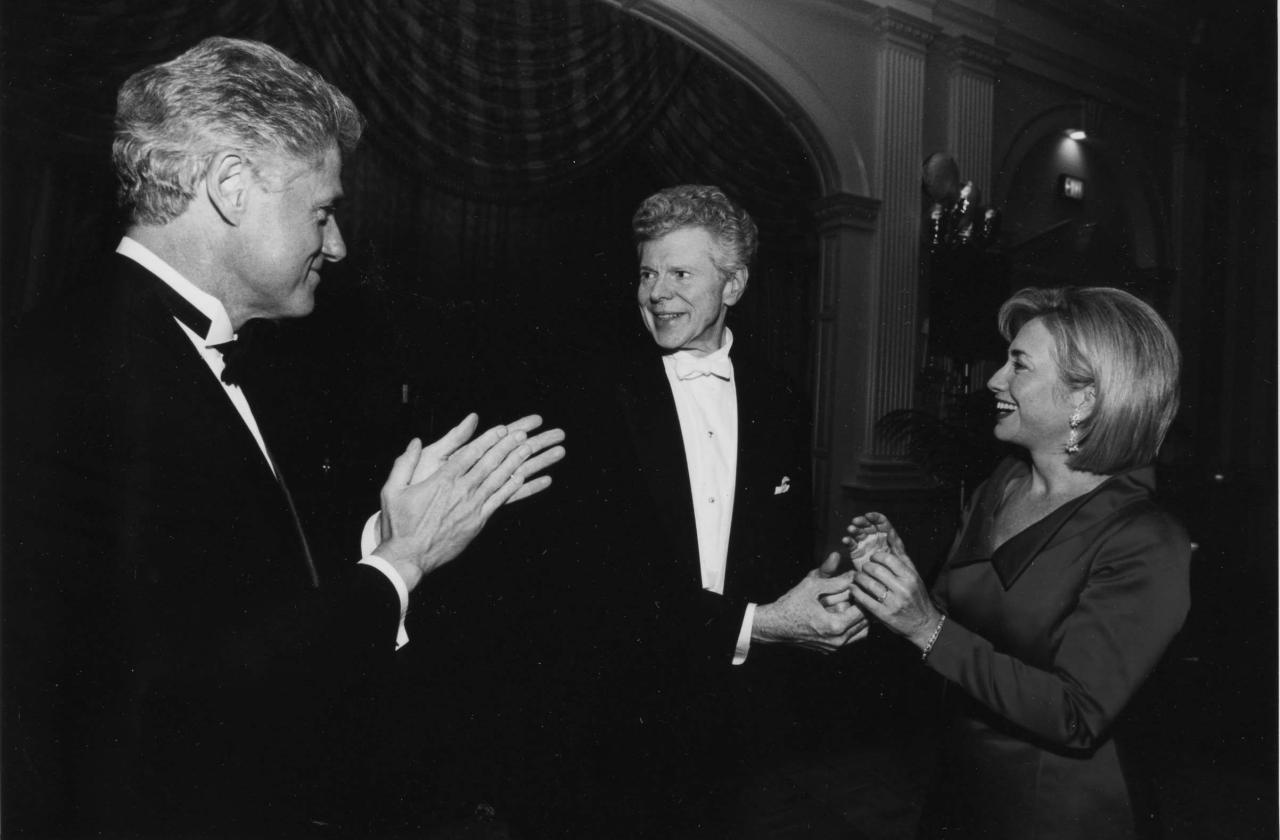
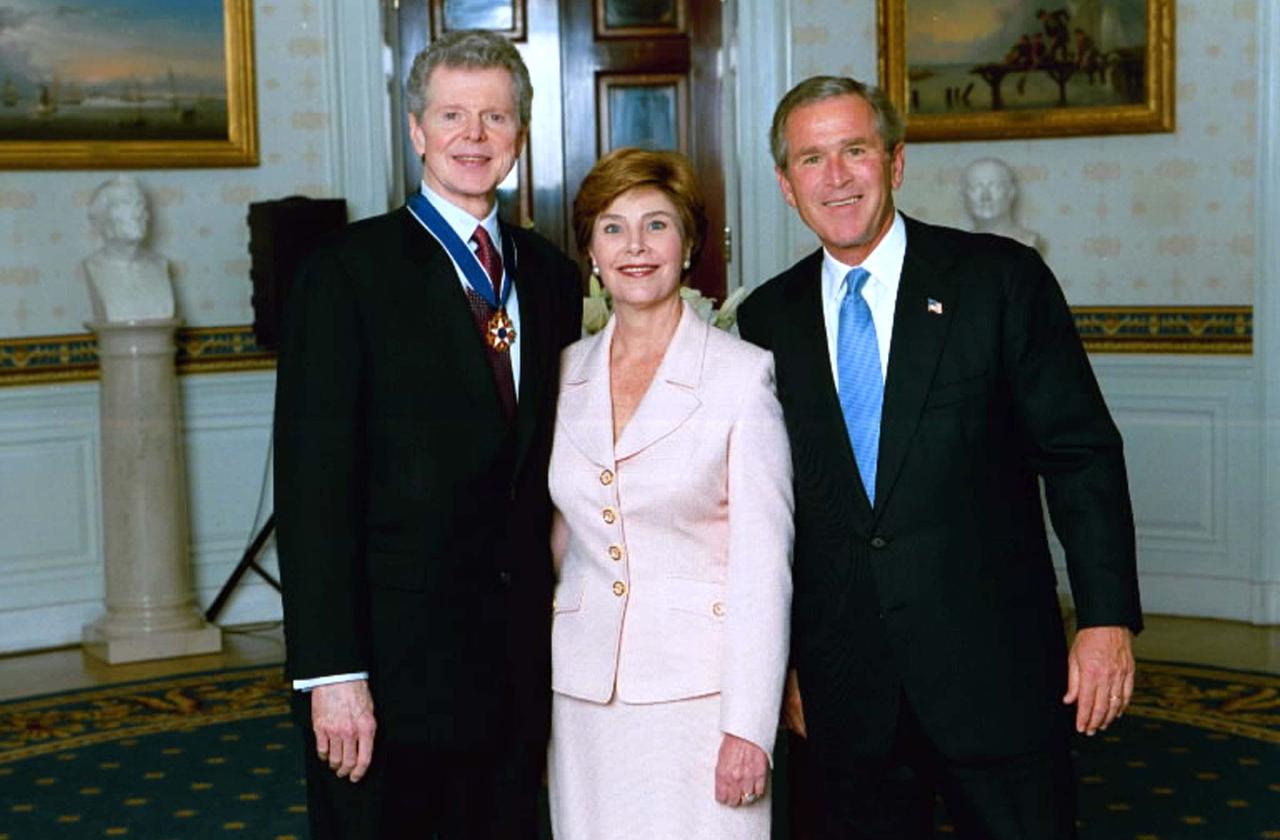
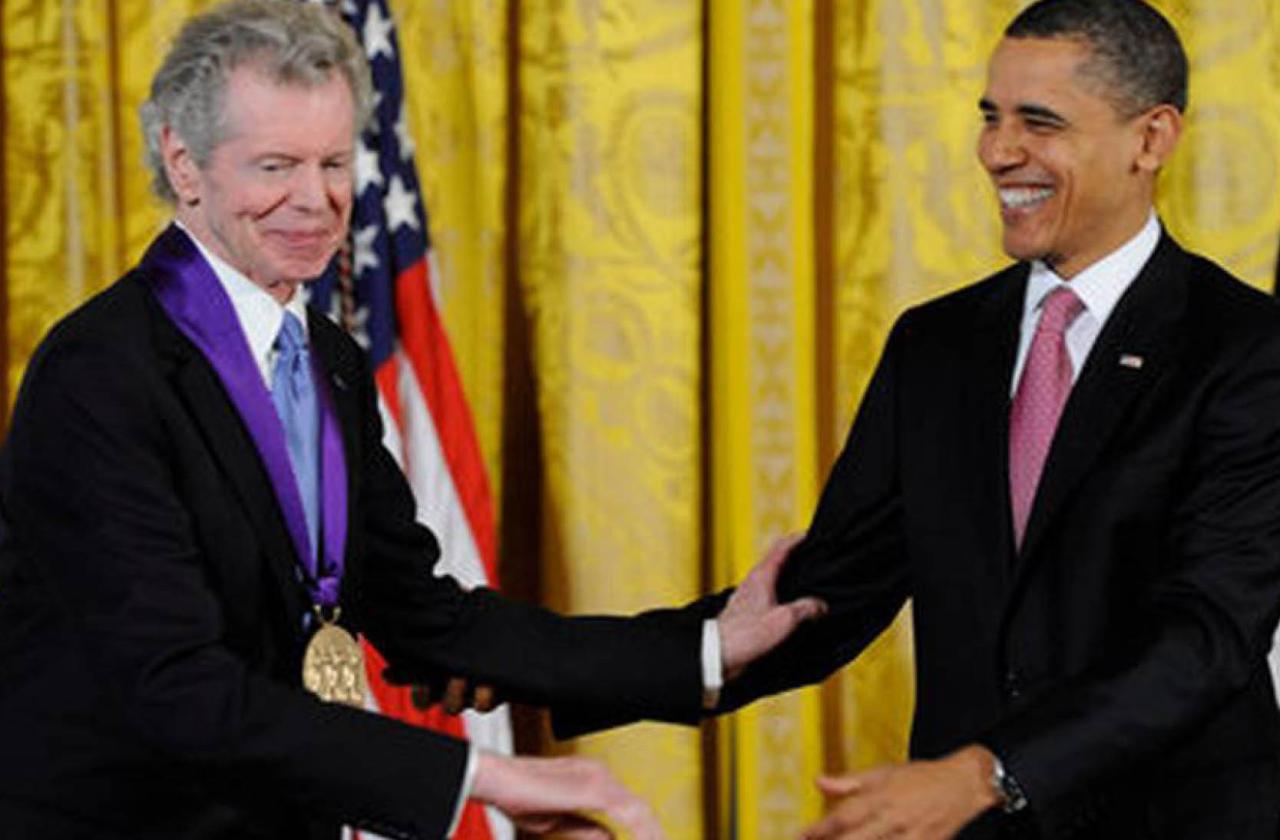
Van Cliburn Timeline
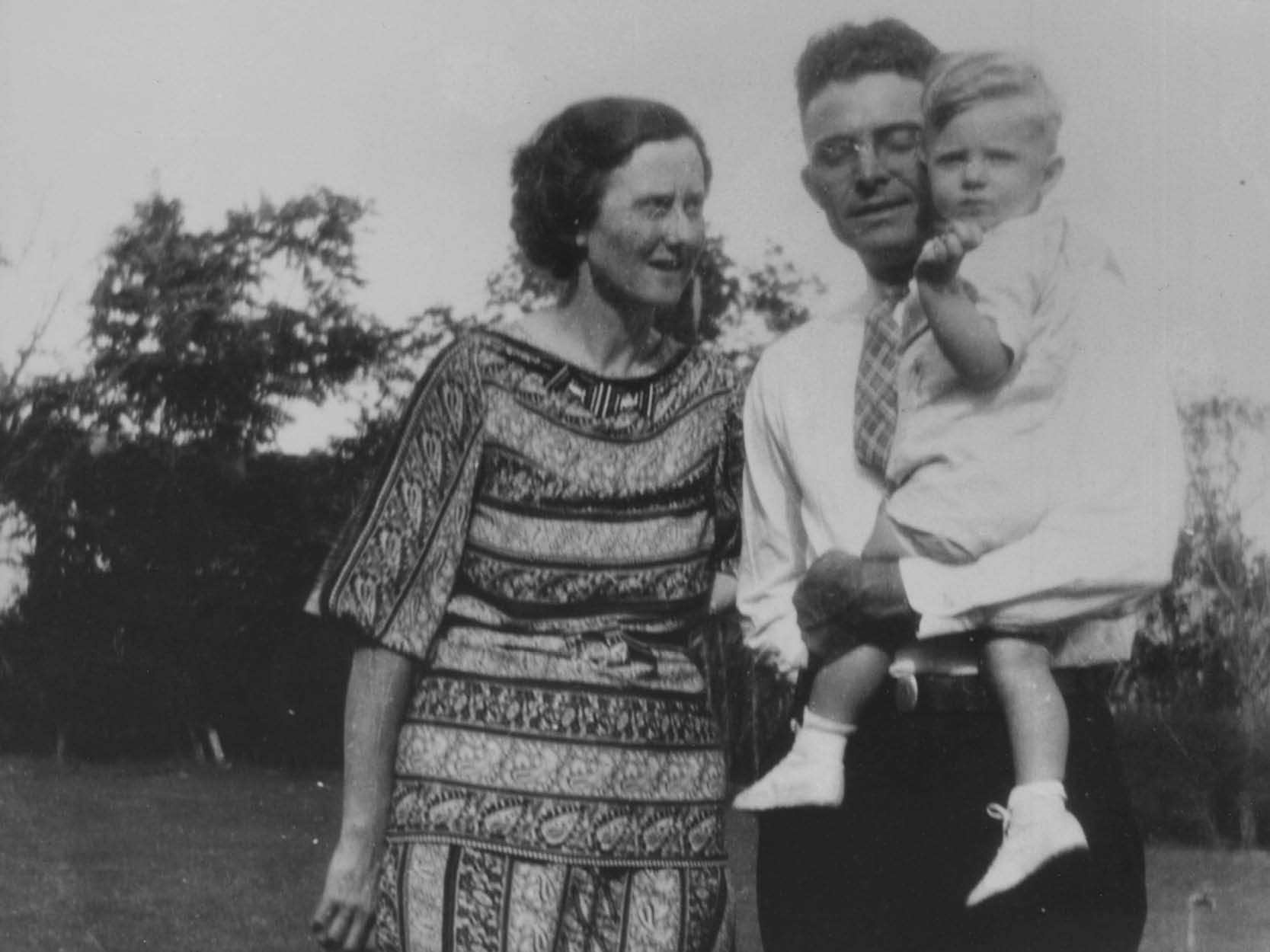
Harvey Lavan "Van" Cliburn Jr. is born
Harvey Lavan "Van" Cliburn Jr. is born in Shreveport, Louisiana to Rildia Bee O'Bryan Cliburn and Harvey Lavan Cliburn Sr.
Pictured here in 1936, Van began taking piano lessons about a year later from his mother, who had studied under Arthur Friedheim, a pupil of Franz Liszt. When Van was six, his father, who worked in the oil industry, moved the family to Kilgore, Texas.
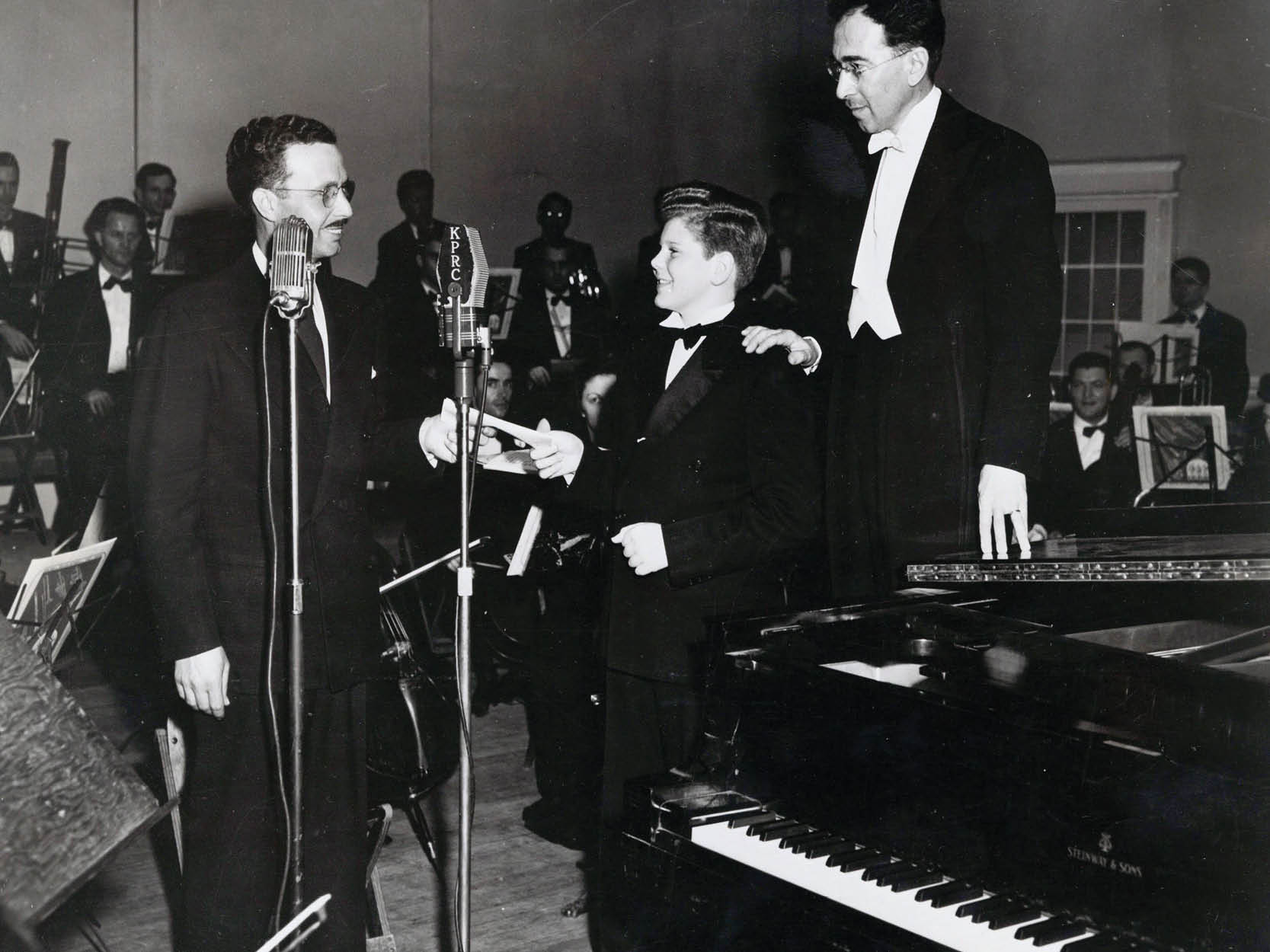
Van makes his orchestral debut
At age 12, Van won the Texas Gulf Sulphur Prize, a statewide piano competition. As part of his prize, Van made his orchestral debut with the Houston Symphony, performing Tchaikovsky's Piano Concerto No. 1–the piece that would later win him worldwide acclaim.
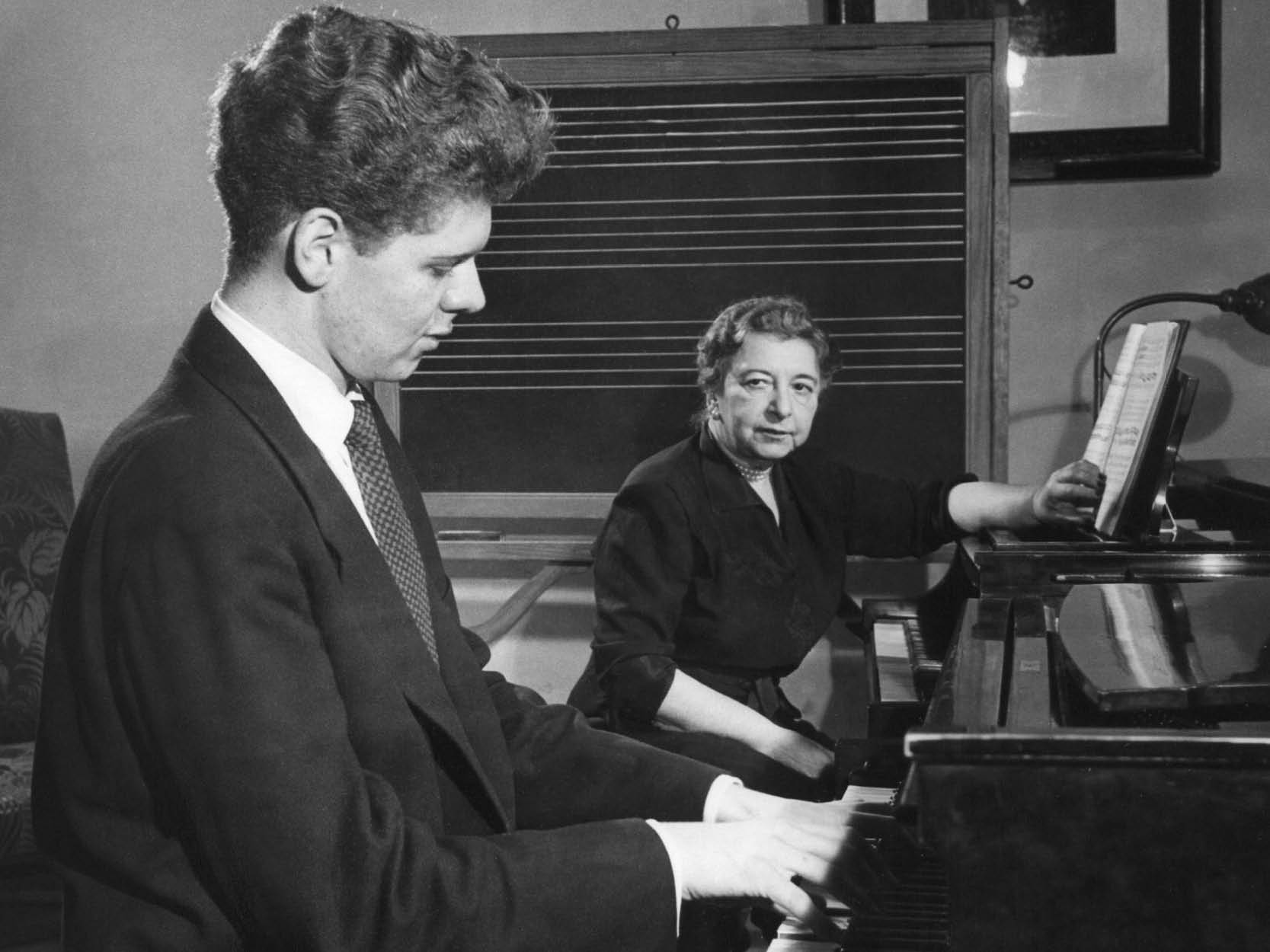
Van enrolls at The Juilliard School
At age 16, Van graduated from Kilgore High School and enrolled at The Juilliard School in New York City, studying under Rosina Lhévinne. Regarded as one of the world's greatest piano pedagogues, Madame Lhévinne had many prominent students including John Williams and pianist John Browning.
Van and Mme. Lhévinne remained close throughout her life, as Lhévinne continued to teach at Juilliard and then at the University of Southern California in Los Angeles where she died in 1976 at age 96.
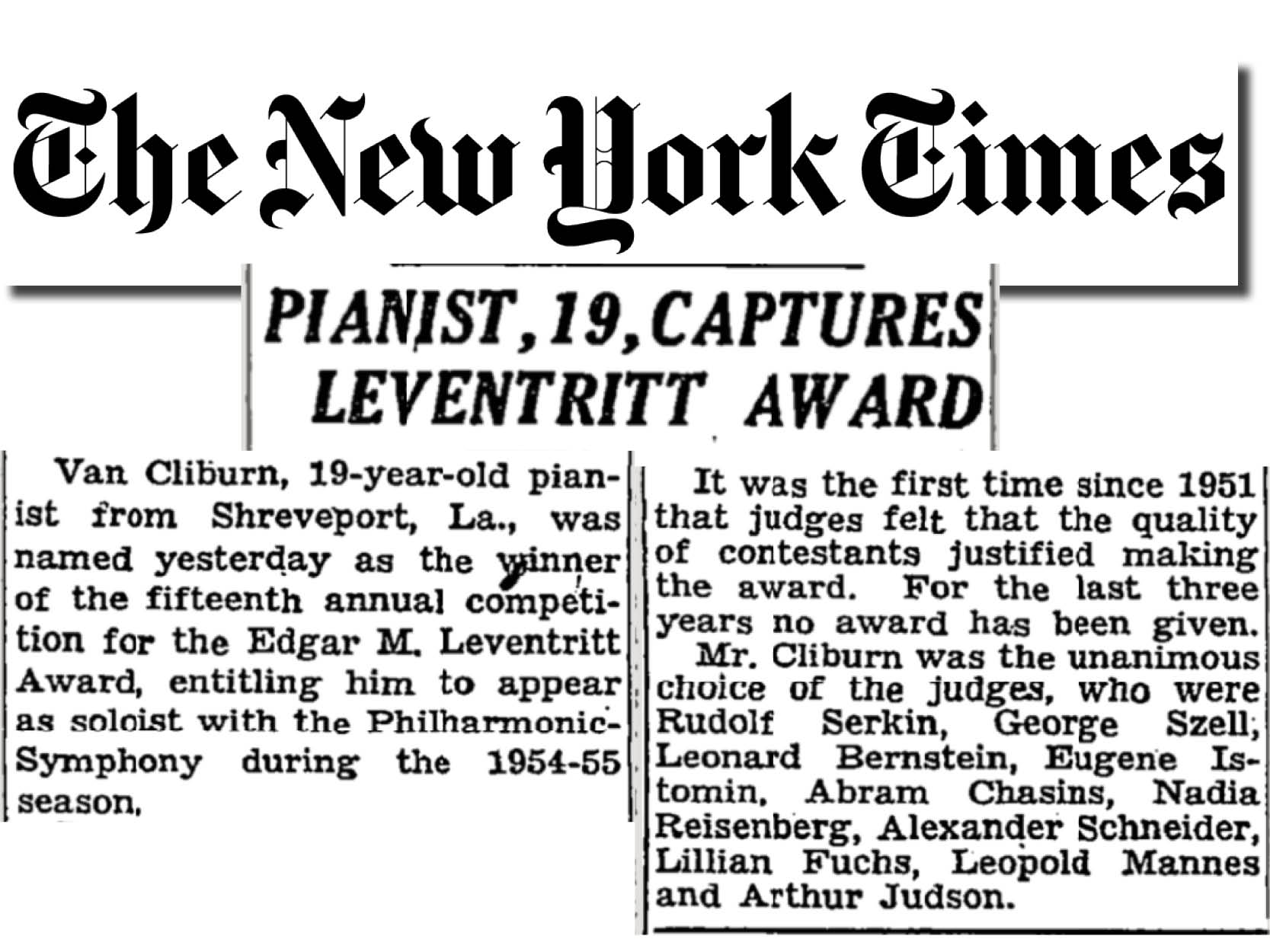
Van wins the Leaventritt Award
At 19 years old Van won the fifteenth annual Leventritt Competition. It was the first time since 1951 that the jury had awarded the prize and Van was chosen unanimously by the jury which included Rudolf Serkin, George Szell, and Leonard Bernstein. The prize guaranteed Van a debut with the New York Philharmonic in the 1954-1955 season.
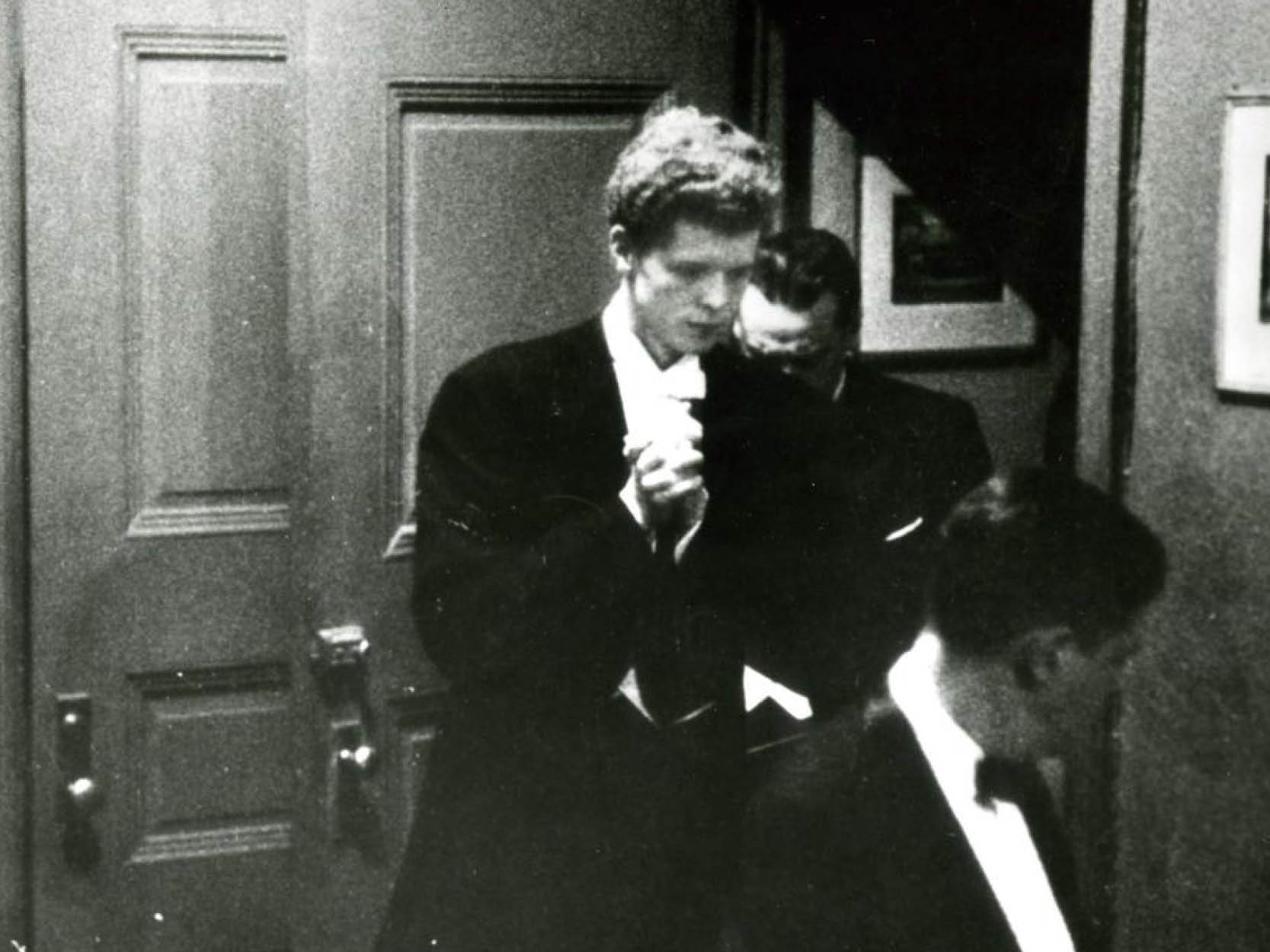
Van makes his New York Philharmonic debut
At 20 years old, Van made his New York Philharmonic debut performing Tchaikovsky Piano Concerto No. 1 in B-flat Minor, op. 23 with conductor Dimitri Mitropoulos at Carnegie Hall.
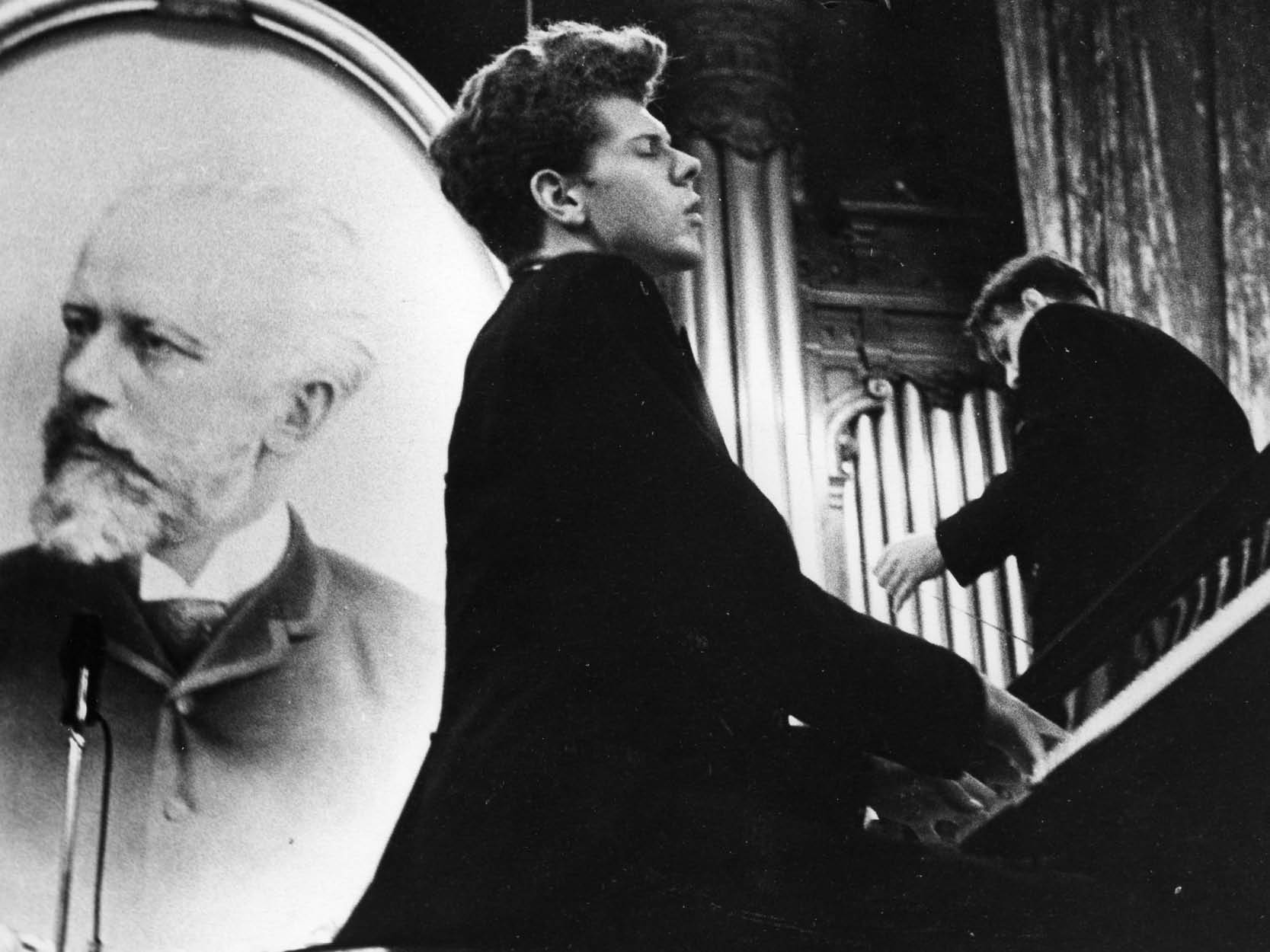
Van wins the first International Tchaikovsky Competition
The first International Tchaikovsky Competition in 1958 was an event designed to demonstrate Soviet cultural superiority during the Cold War after the USSR's technological victory with the Sputnik launch in October 1957. Cliburn's performance at the competition finale of Tchaikovsky's Piano Concerto No. 1 and Rachmaninoff's Piano Concerto No. 3 on April 13 earned him a standing ovation lasting eight minutes. After the ovation, Van Cliburn made a brief speech in Russian and then resumed his seat at the piano and began to play—to the surprise and delight of the Russian musicians visible behind him in the film made of his part in the competition—his own piano arrangement of the much-beloved song "Moscow Nights", which further endeared him to the Russians.
At 23 years old, Van Cliburn achieved what many thought was impossible. He had gone to Russia and returned victorious. The Competition judges had to ask Nikita Khrushchev permission to award first place to an American, prompting Khrushchev to say, "Is he the best? Then give him the prize!" Van's victory turned him into an international celebrity overnight, and launched a legendary career that would last for the next five decades.
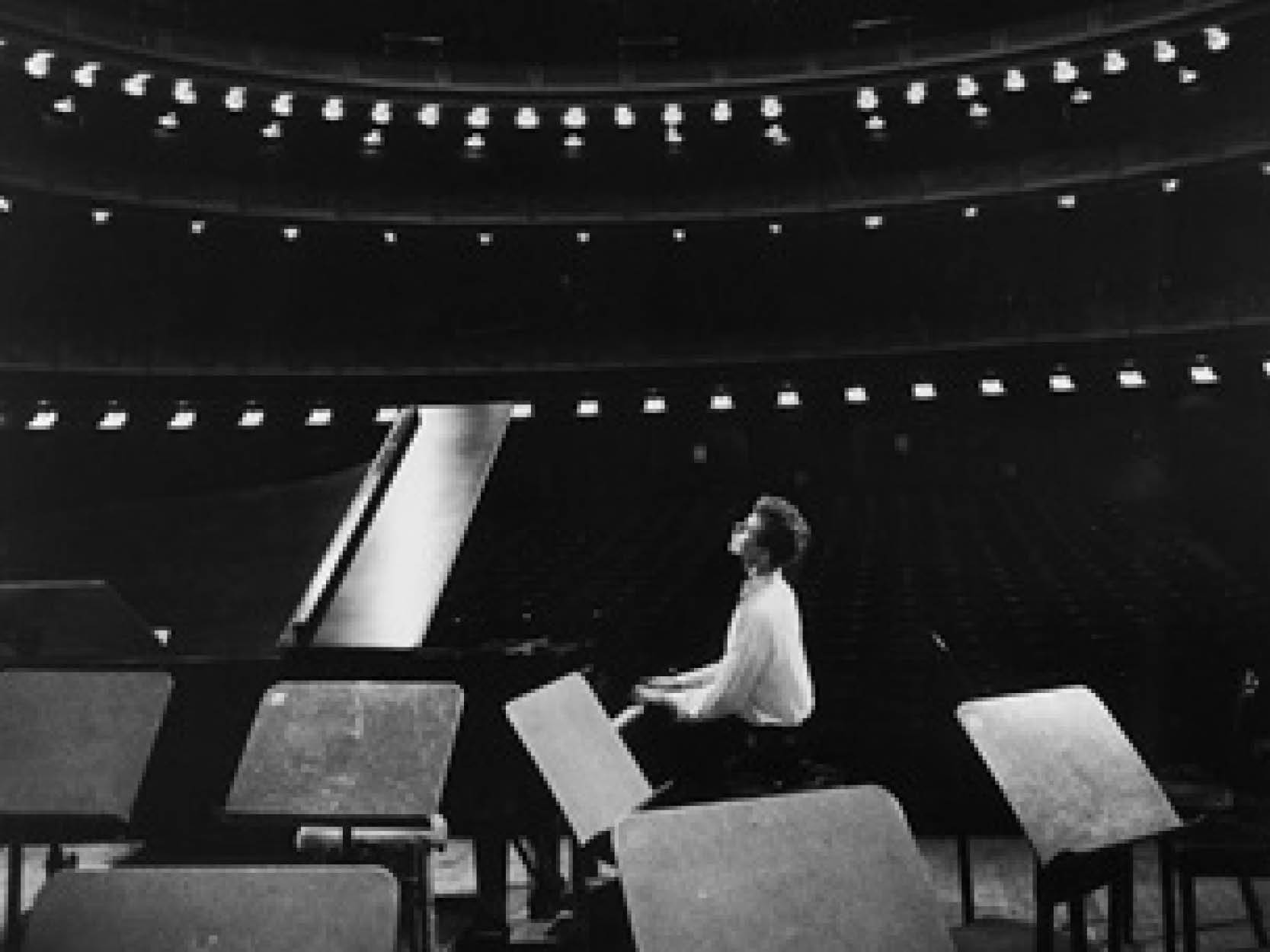
Van sells out Carnegie Hall
About five weeks after winning the first International Tchaikovsky Competition, Van Cliburn gave a sold-out performance at Carnegie Hall with conductor Kirill Kondrashin and the Symphony of the Air which was broadcast live on WQXR. New York City mayor Robert F. Wagner Jr. introduced Van's performance saying, "we're so proud of what he's done, not only in the field of music, but in the field of international relations, bringing people closer together."
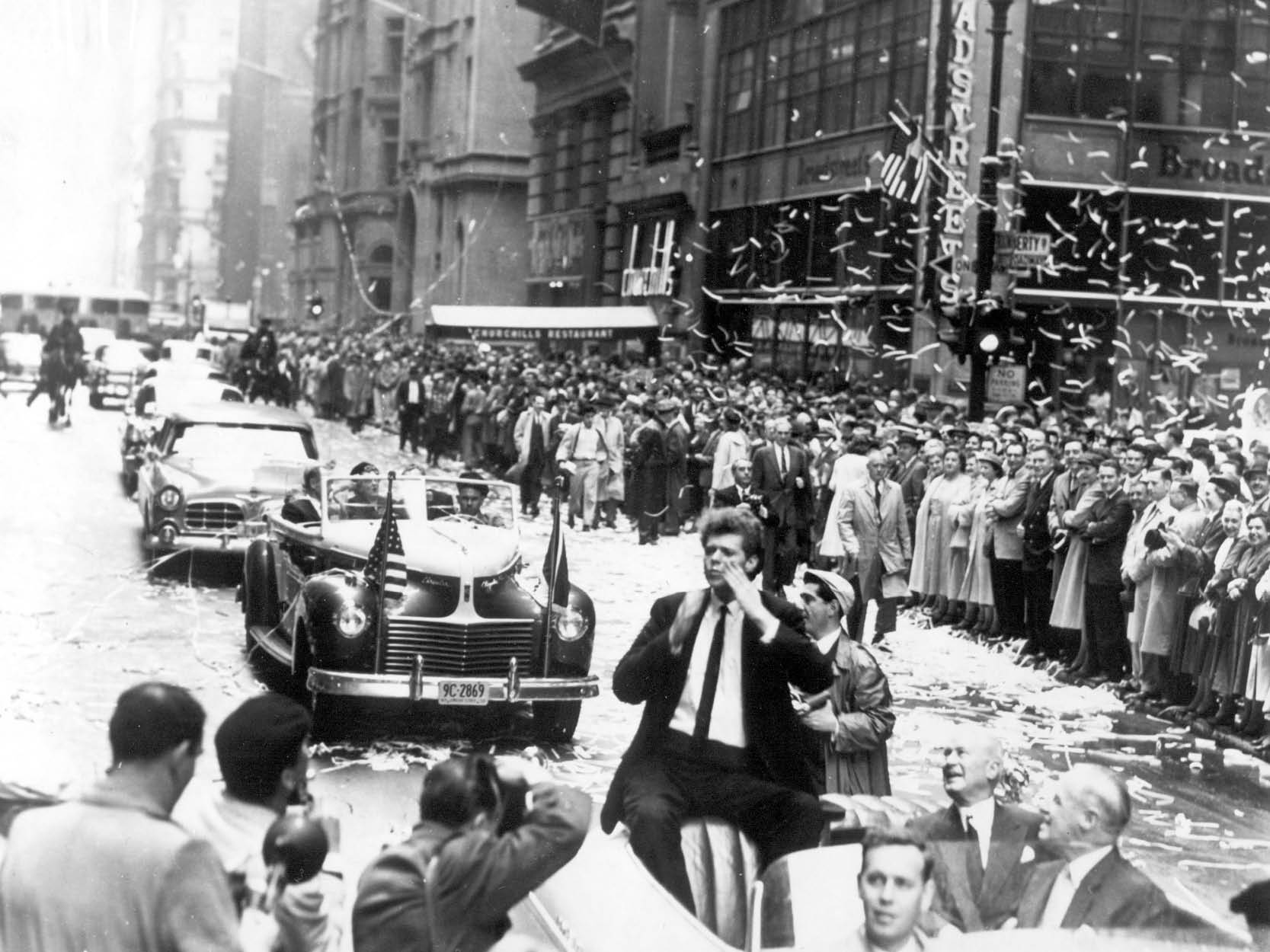
Van receives a ticker-tape parade in his honor
Upon his triumphant return to the United States, Van was greeted with a ticker-tape parade down New York's "Canyon of Heroes". To date Van is the only musician to receive this honor. Arriving at City Hall after the parade, Van told the audience:
"I appreciate more than you will ever know that you are honoring me, but the thing that thrills me the most is that you are honoring classical music. Because I'm only one of many. I'm only a witness and a messenger. Because I believe so much in the beauty, the construction, the architecture invisible, the importance for all generations, for young people to come that it will help their minds, develop their attitudes, and give them values. That is why I'm so grateful that you have honored me in that spirit."
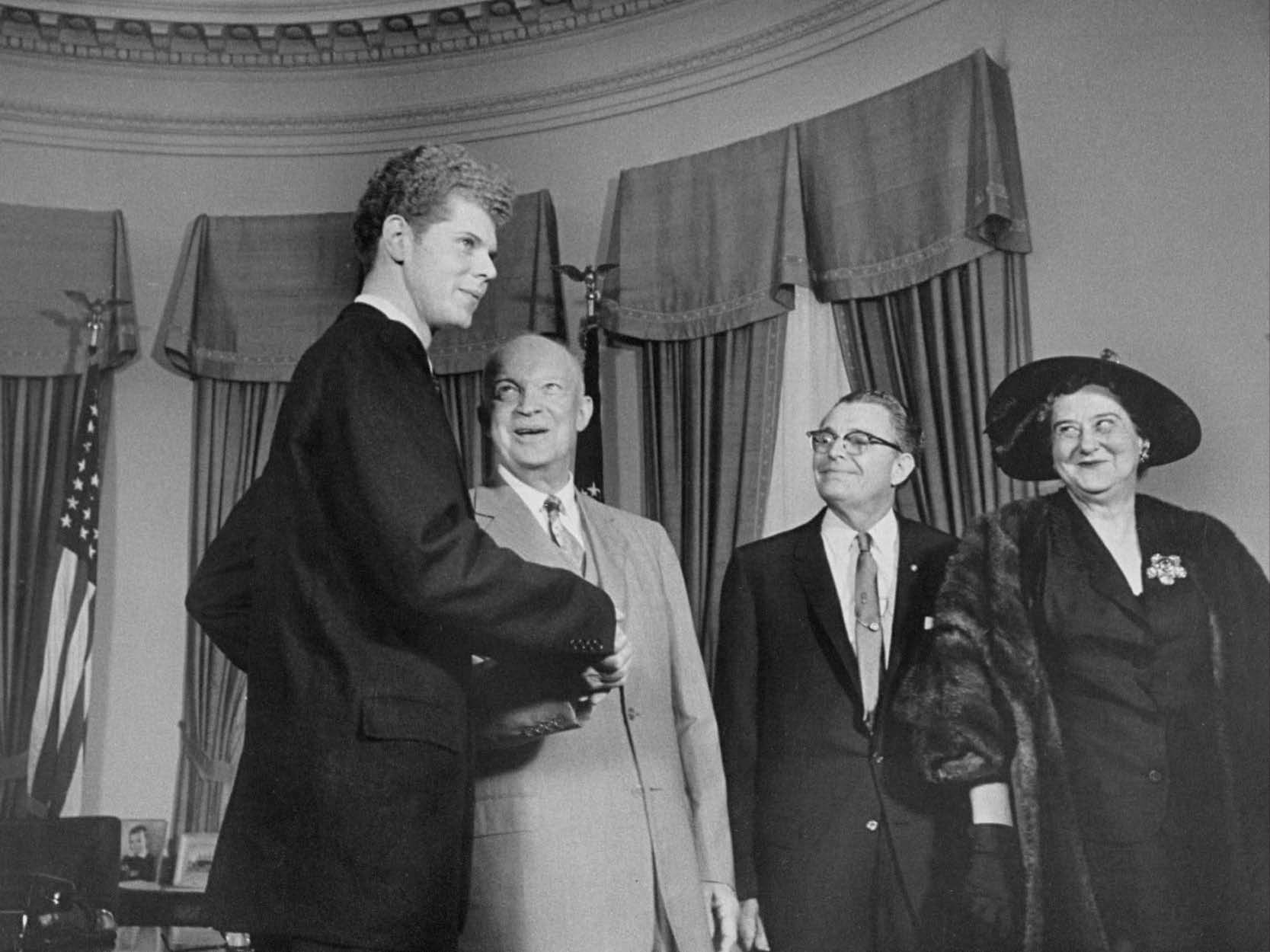
Van visits President Dwight D. Eisenhower at the White House
Van along with his parents visited with President Eisenhower in the Oval Office to discuss US-Soviet Relations
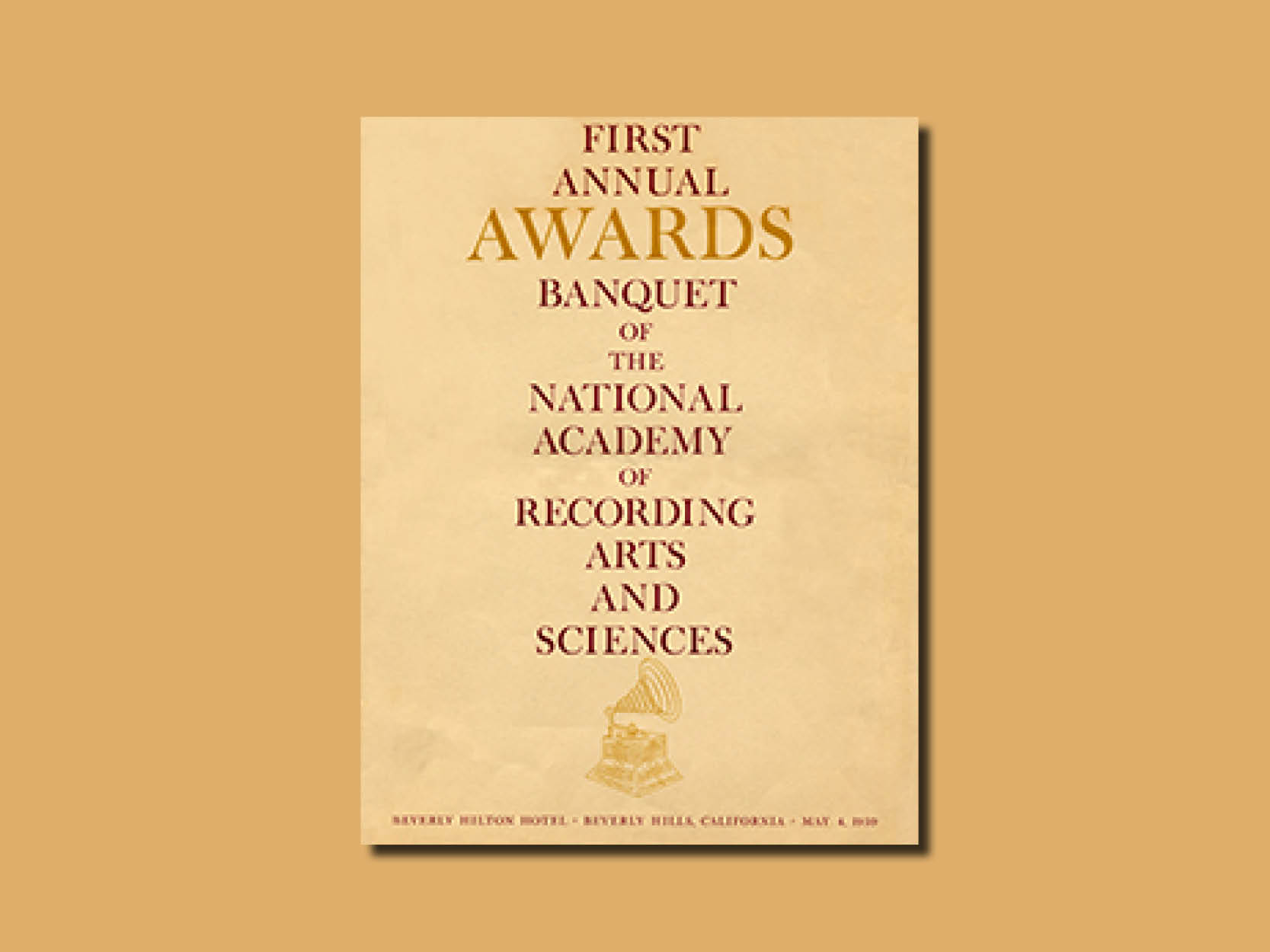
Van wins first Grammy® Award for Best Classical Performance
At the 1st Annual Grammy® Awards at the Beverly Hilton Hotel in Los Angeles, Van was awarded the Grammy for Best Classical Performance–Instrumentalist (with concerto scale accompaniment) for his 1958 recording of Tchaikovsky: Piano Concerto No. 1 In B Flat Minor, Op. 23 with the RCA Victor Symphony Orchestra conducted by Kirill Kondrashin. The recording was also nominated for Album of the Year but lost to Henry Mancini's "The Music from Peter Gunn".
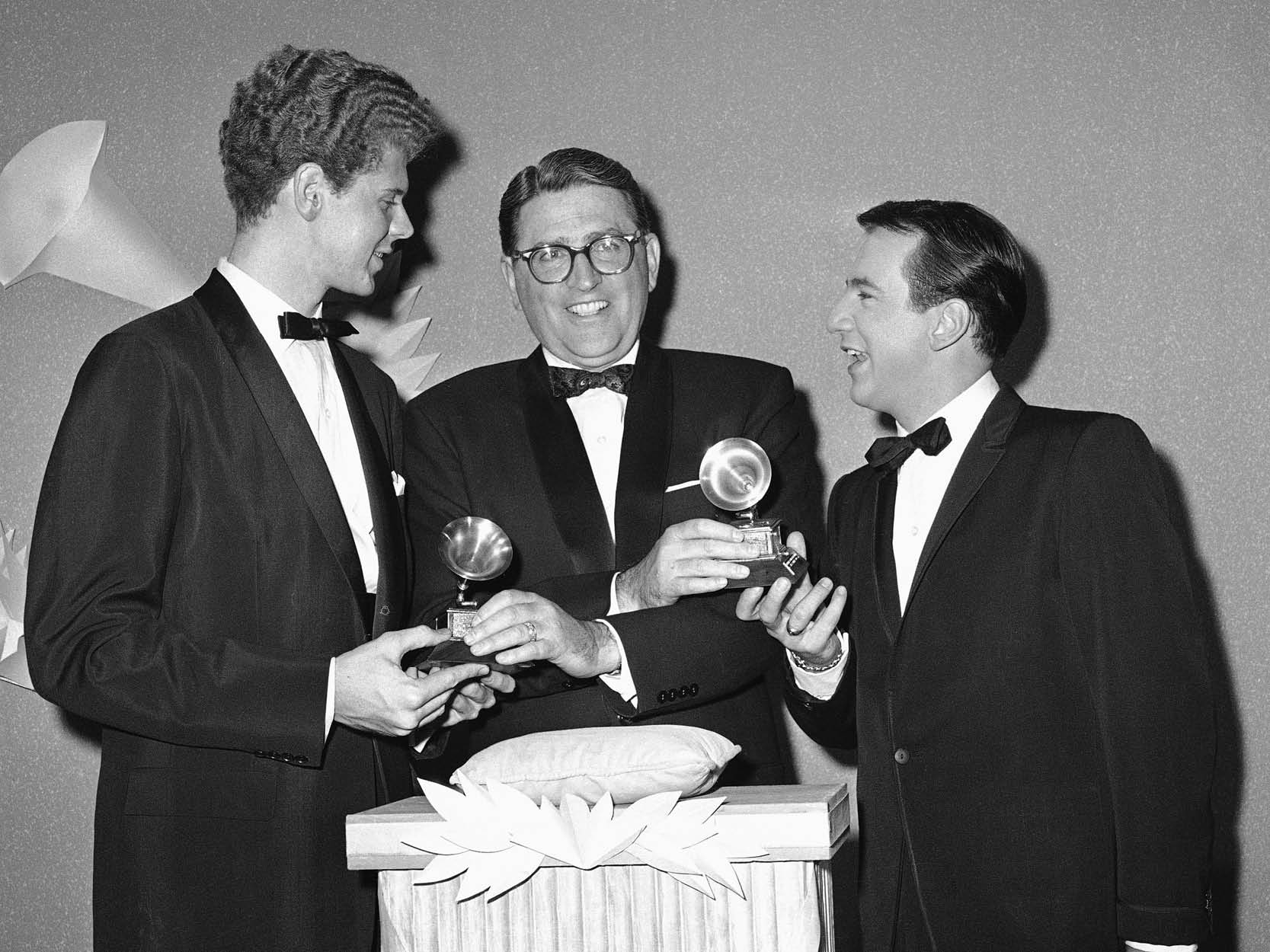
Van wins second Grammy® Award for Best Classical Performance
The 2nd Grammy® Awards Show was the first to be televised and saw a performance by Van Cliburn followed by his second consecutive win for Best Classical Performance– Instrumentalist (with concerto scale accompaniment), this time for his recording of Rachmaninoff: Piano Concerto No. 3 with the Symphony of the Air conducted by Kirill Kondrashin.
Van pictured here with host Meredith Wilson and winner of Record of the Year and Best New Artist, singer Bobby Darin.
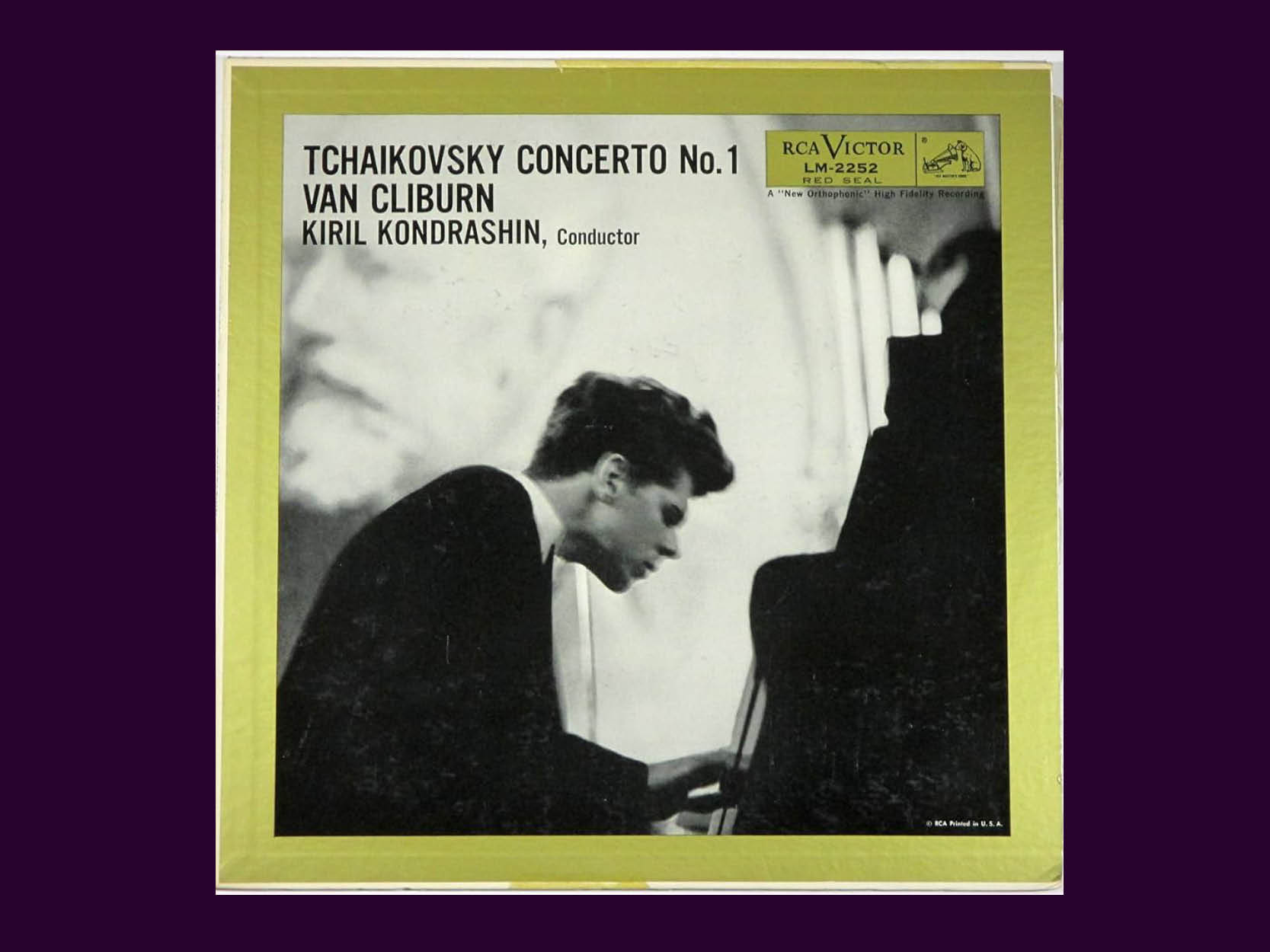
Van's recording of Tchaikovsky Piano Concerto No. 1 certified gold
The Recording Industry Association of America introduced the Gold Record certification in 1958 for albums that sold more than 1 million copies. Van Cliburn's recording of Tchaikovsky's Piano Concerto No. 1 became the first classical music record to achieve this certification. In 1989 this recording would go platinum, becoming the first classical music record to sell more than 3 million copies.
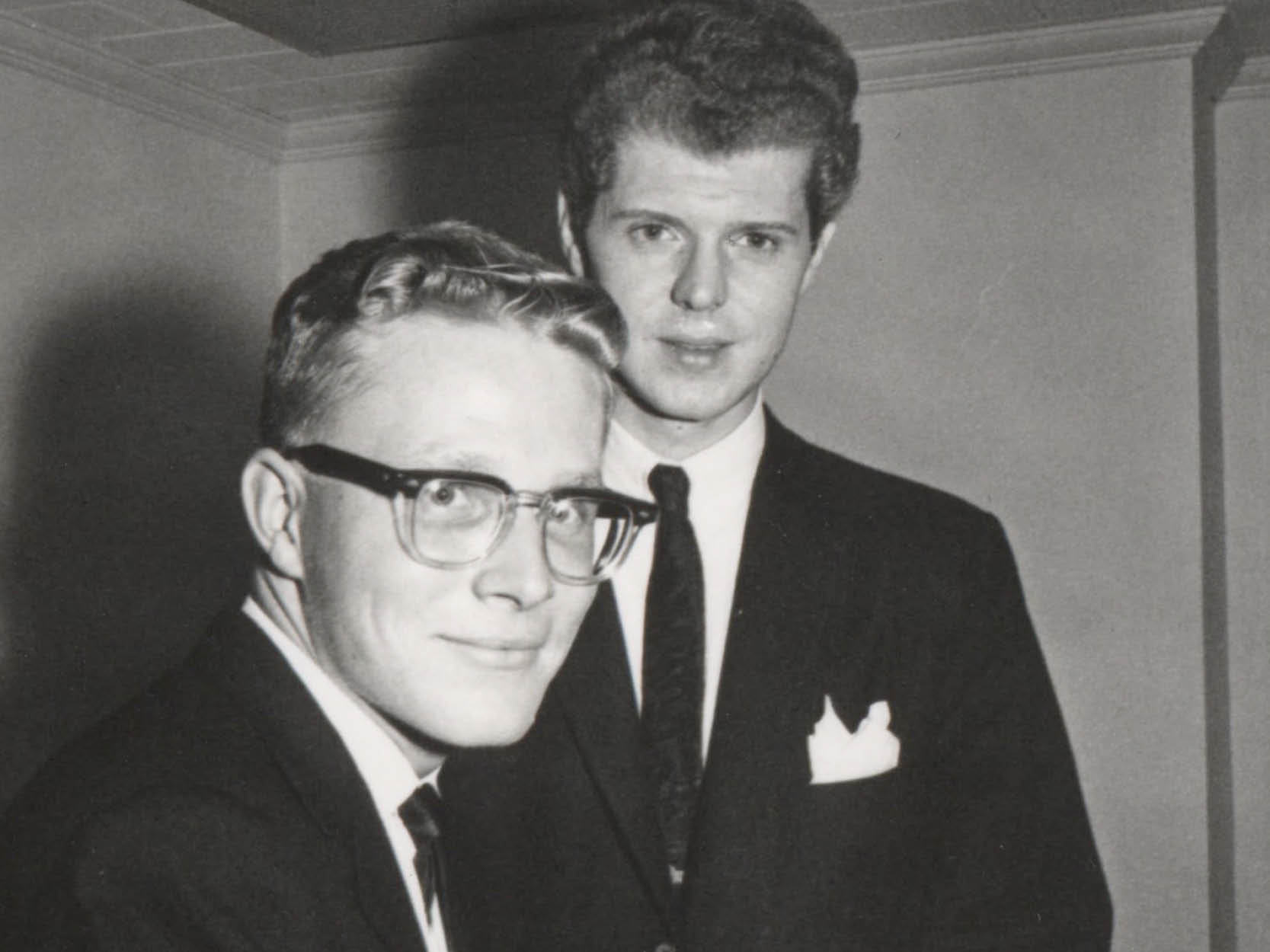
First Van Cliburn International Piano Competition
At a dinner banquet in November 1958, Dr. Irl Allison, founder of the National Guild of Piano Teachers, passed a note to Grace Ward Lankford, co-founder of the Fort Worth Piano Teachers Forum. The note read, “Hold onto your seat, I have a startling announcement!” Standing before a crowd of 500, including Van Cliburn and his mother, Rildia Bee O’Bryan Cliburn, Dr. Allison announced his intention to offer a $10,000 first prize to be awarded by an international piano competition named in Cliburn’s honor. The idea caught everyone (especially Van Cliburn) by surprise, and immediately ignited the imagination and enthusiasm of music lovers and civic leaders throughout Fort Worth.
The quadrennial Van Cliburn International Piano Competition quickly established itself as an event that inspires and engages the local community, while gracing the international stage. The Cliburn Competition is one of the few musical events in the world to arrange for competitors to stay with host families, often resulting in close, long-term relationships: this has resulted in southern hospitality becoming a singular trademark of the Cliburn Competition.
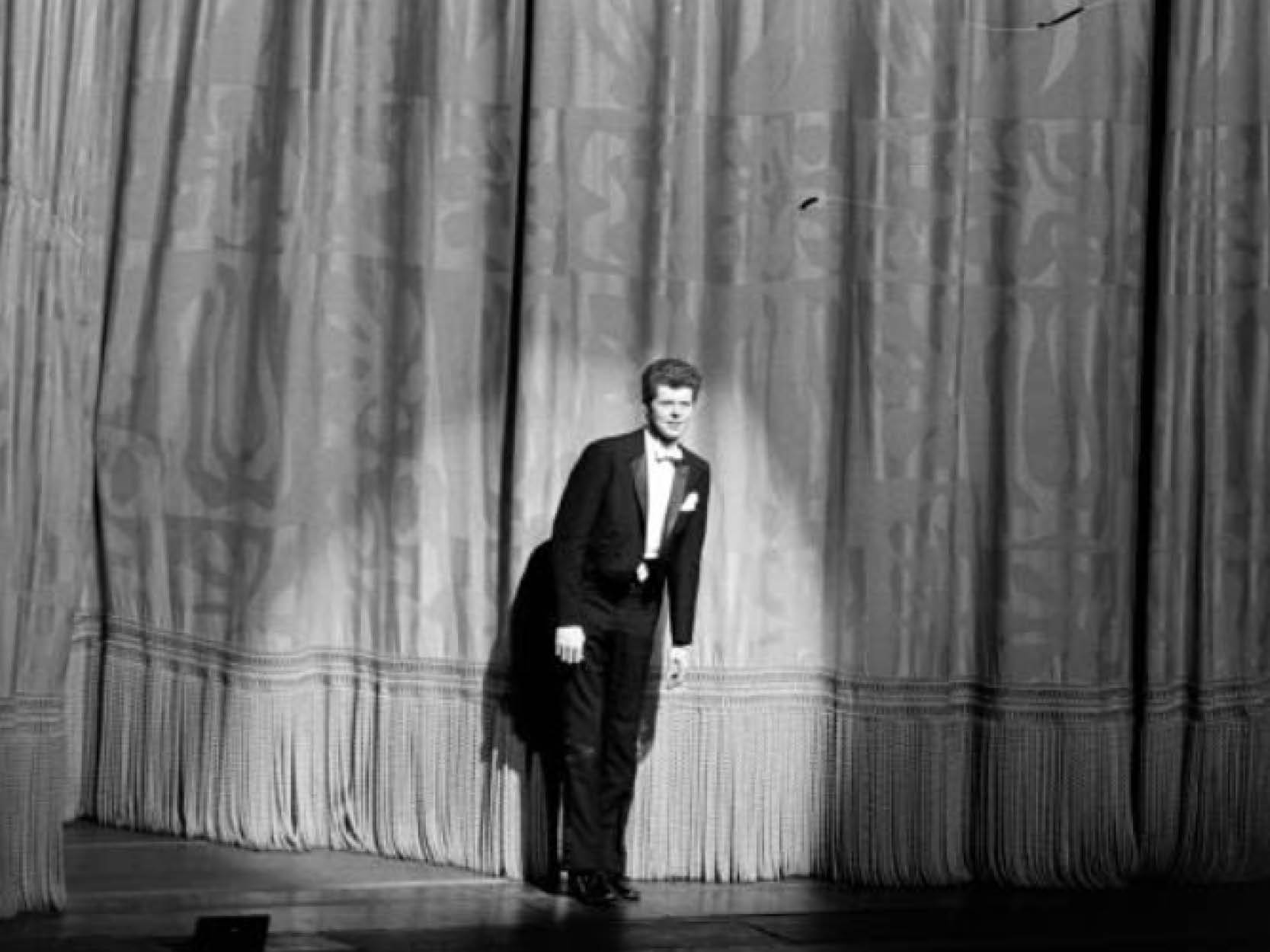
Van takes a hiatus from busy touring schedule
Since his Tchaikovsky win in 1958, Van maintained an international touring schedule of upwards of 100 concerts per year. Additionally, he made more than 28 studio recordings for RCA records during this time. After 20 years, Van took a much needed break from public life.
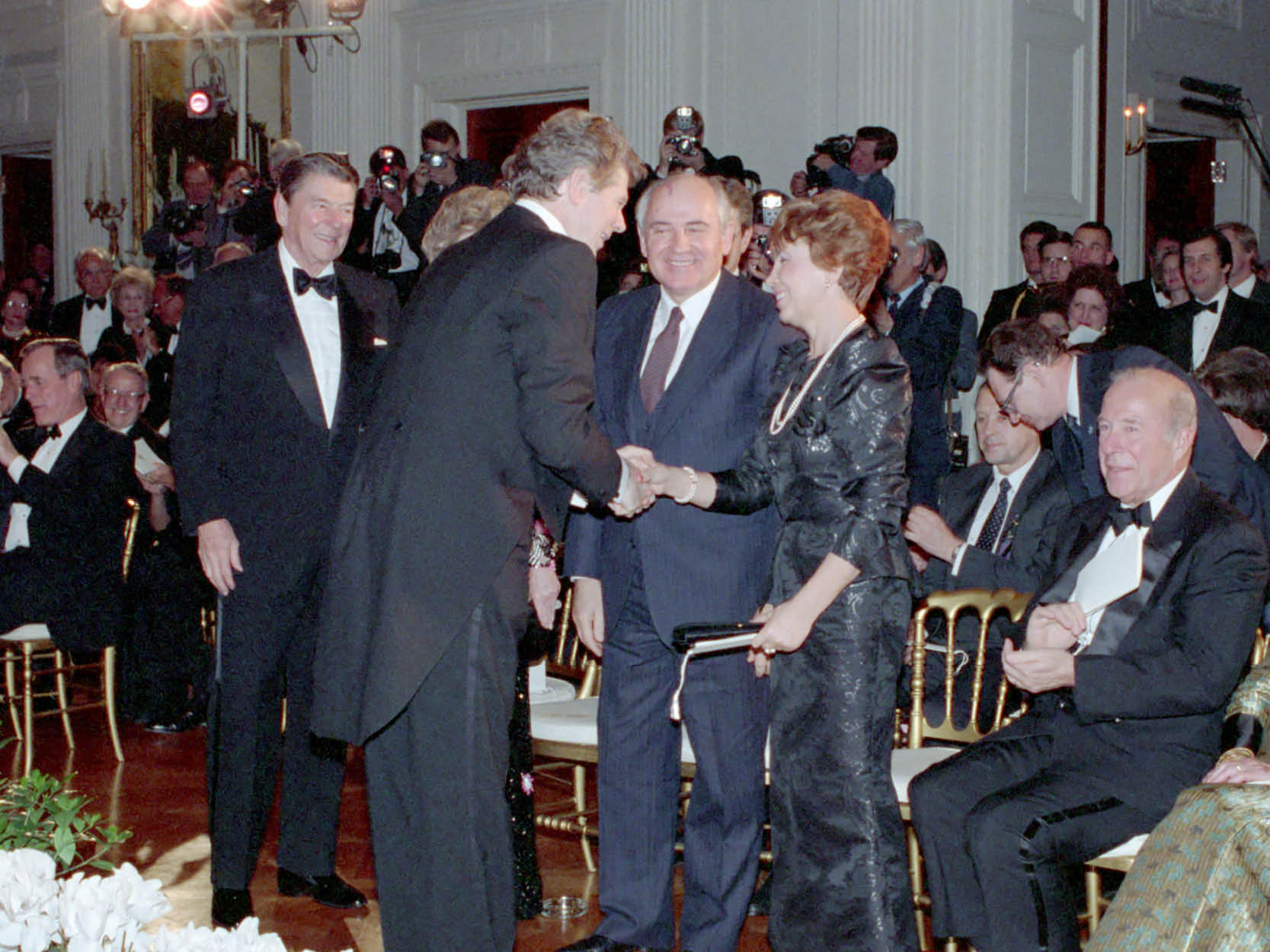
Van performs at the White House for President Reagan and Soviet President Gorbachev
After retiring from public life in 1978, Van made his return with this performance at Reagan White House for the Soviet head of state Mikhail Gorbachev and his wife Raisa in the audience. The concert was part of a summit meeting between the two leaders who eventually ended the Cold War.
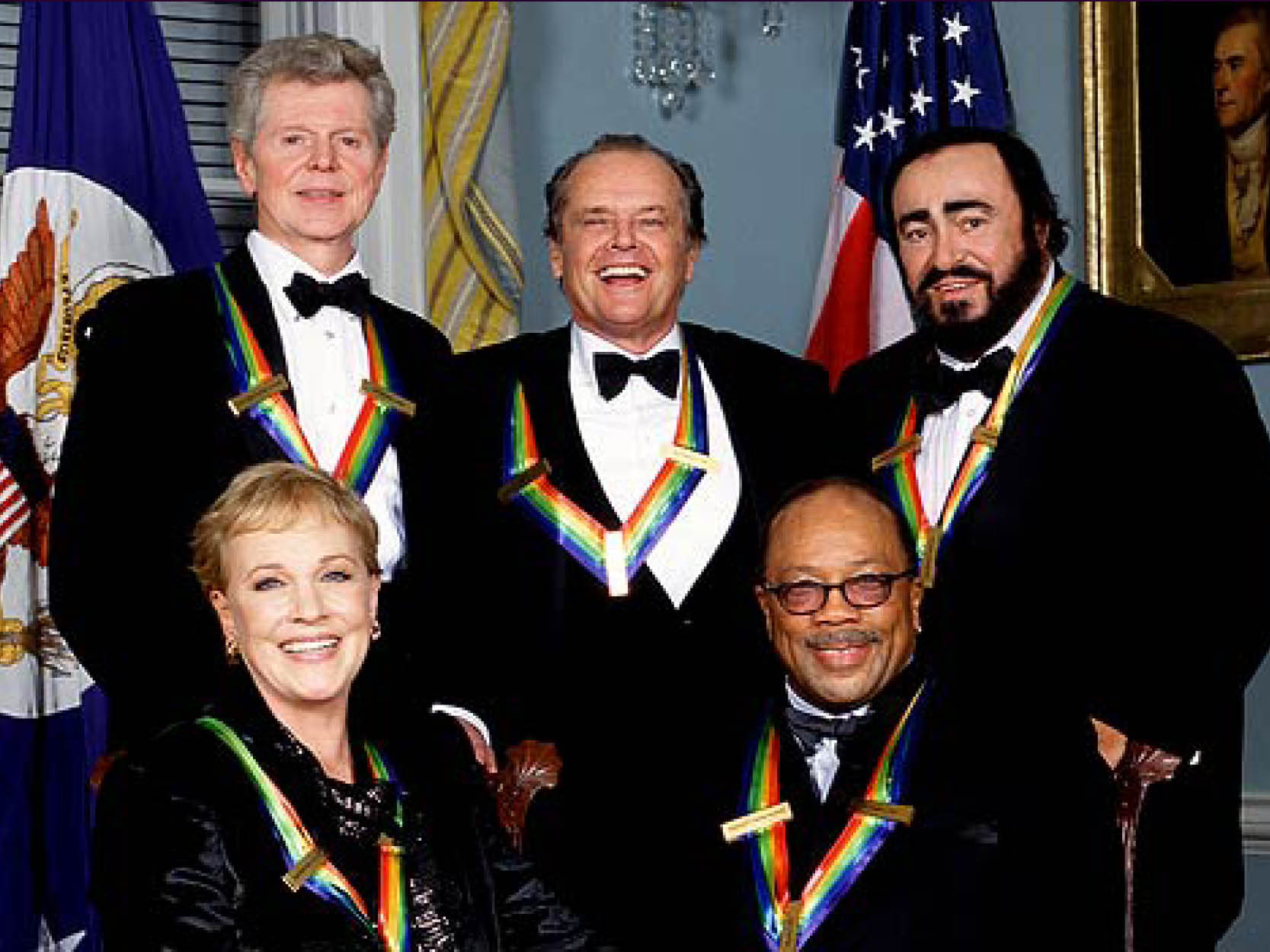
Kennedy Center Honors
Van was awarded Kennedy Center Honors alongside Jack Nicholson, Luciano Pavarotti, Julie Andrews, and Quincy Jones. At the awards ceremony, 2001 Cliburn Gold Medalist Olga Kern and soprano Renée Fleming performed in tribute to Van.
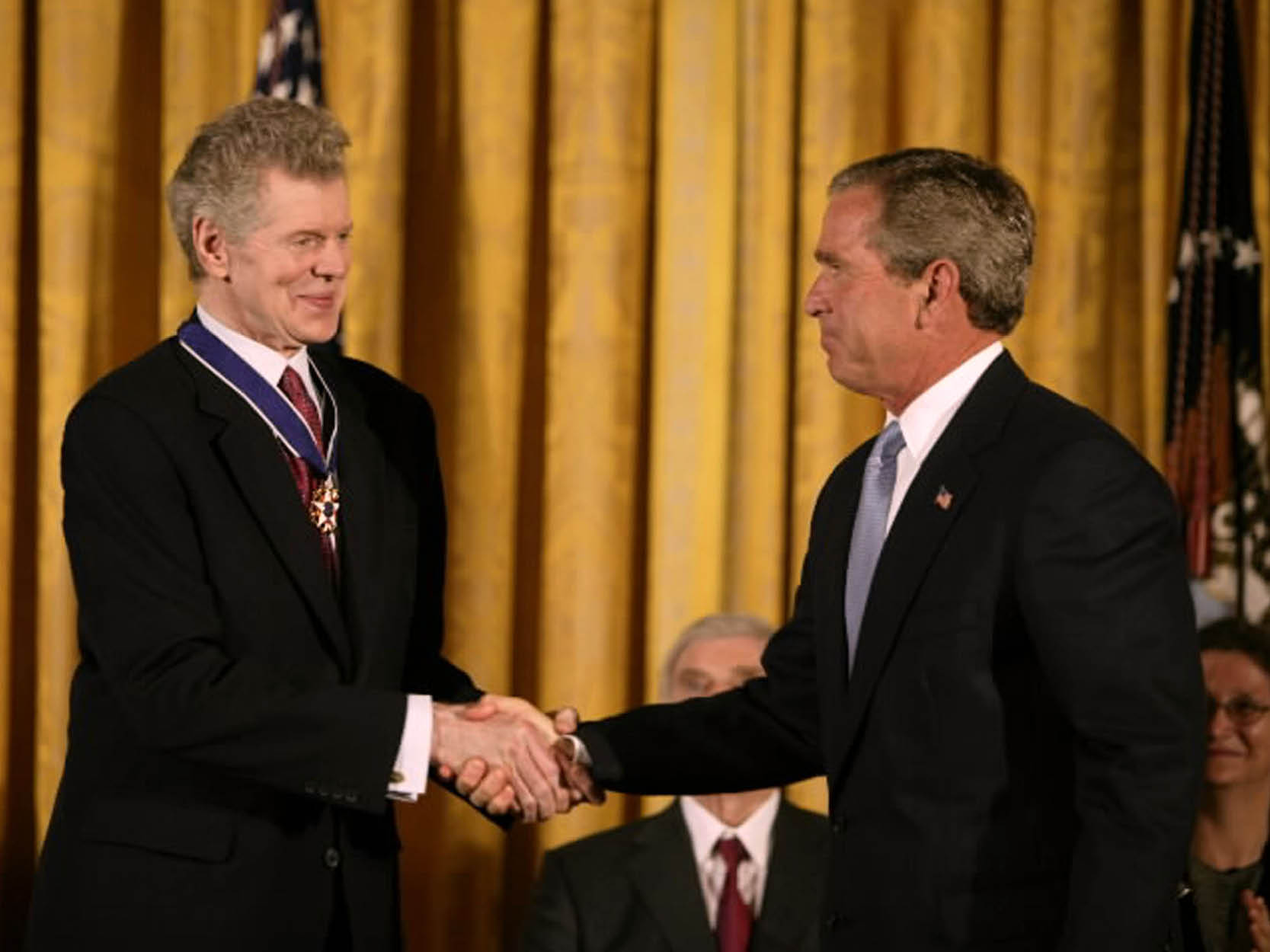
Presidential Medal of Freedom
For his significant contributions to music and service as a global cultural ambassador, Van was awarded highest civilian honor in the United States by President George W. Bush.
"Today, throughout America and across the world, musicians find inspiration in his example, and all of us associate the name Van Cliburn with grace, and the perfect touch at the piano." – President George W. Bush
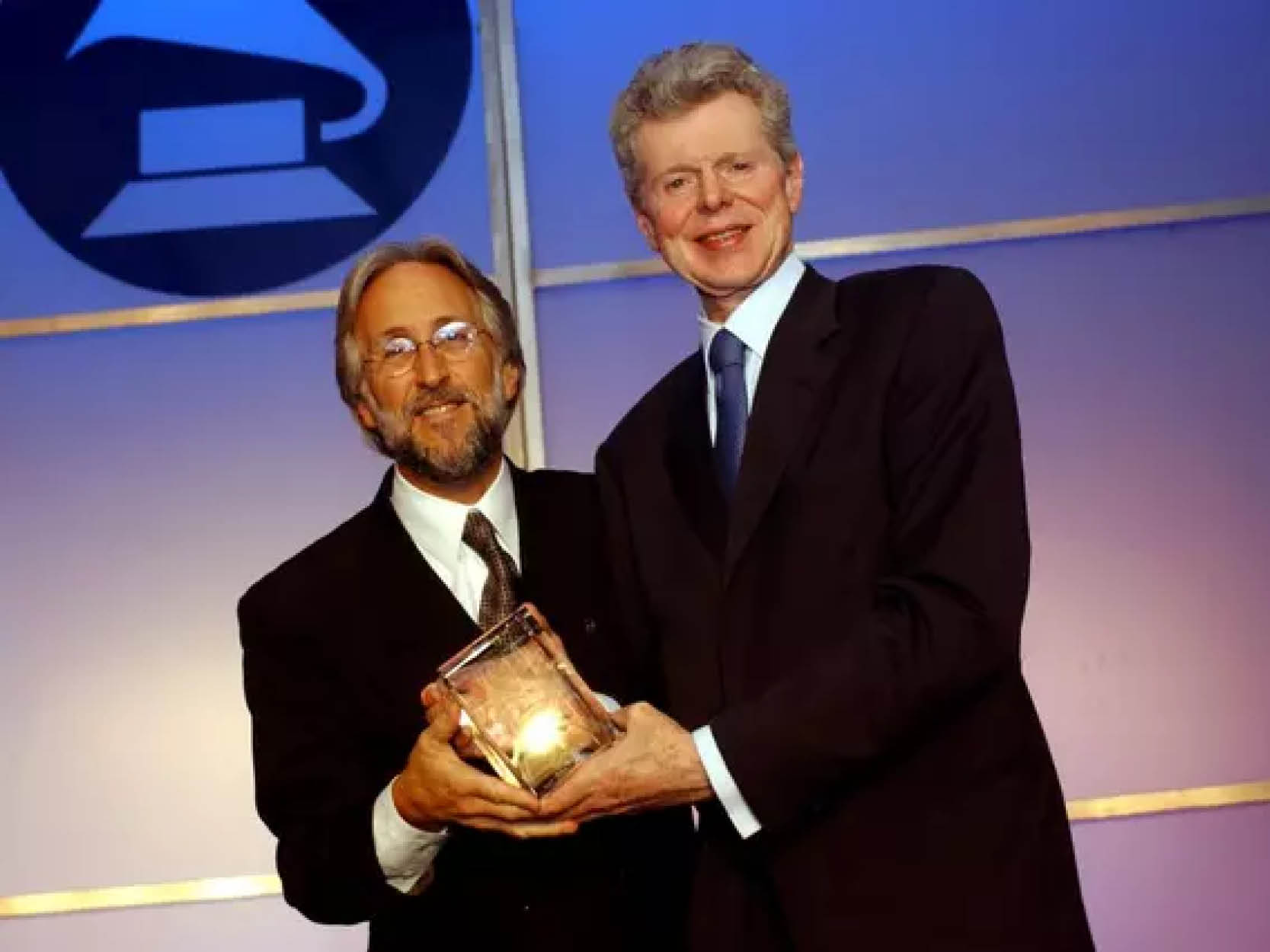
Grammy® Lifetime Achievement Award
Van pictured here with chairman and CEO of The Recording Academy Neil Portnow. Over his career, Van received 10 Grammy nominations and 2 wins.
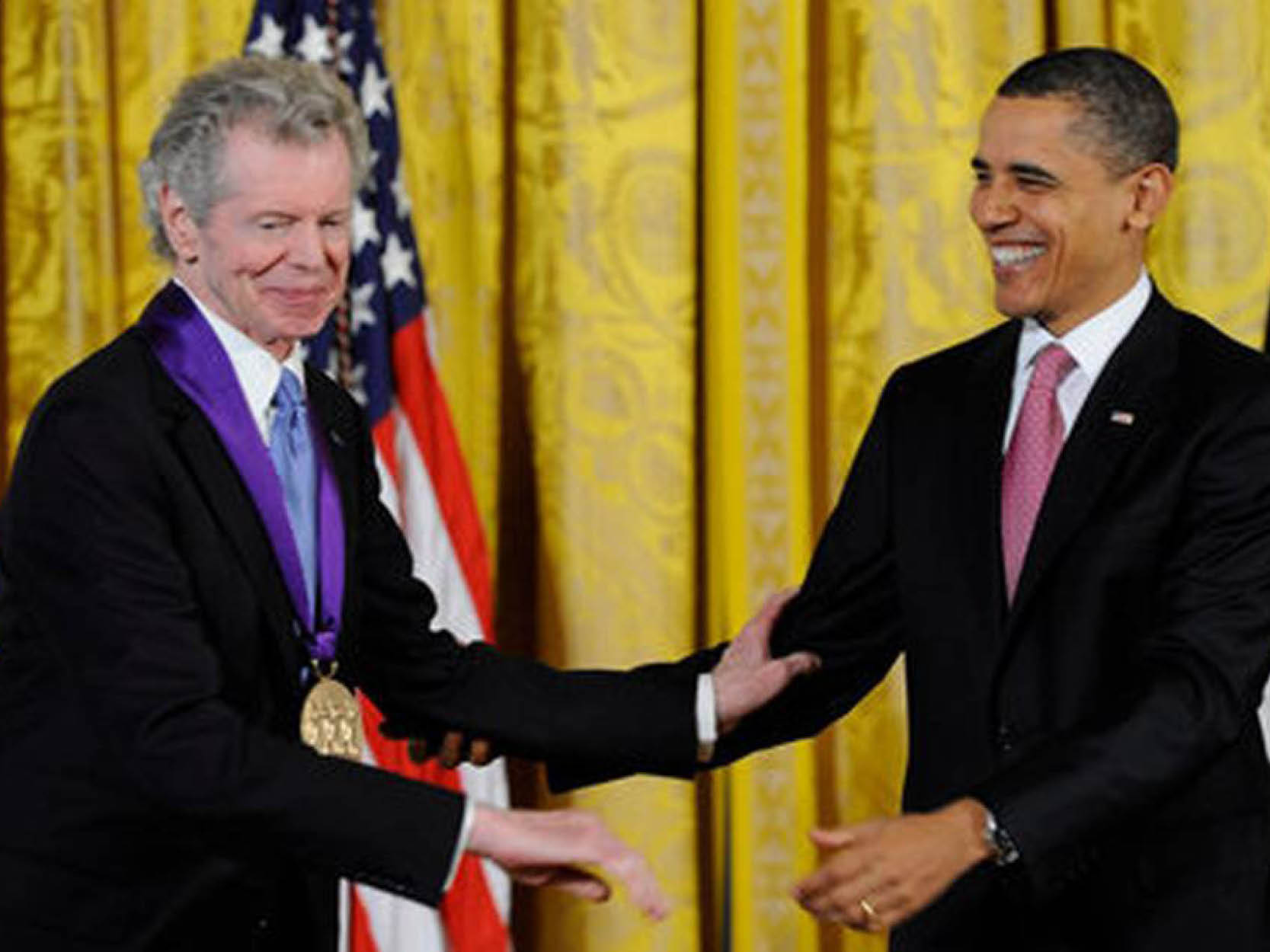
National Medal of the Arts
Managed by the National Endowment for the Arts, the National Medal of Arts is the highest award given to artists and arts patrons by the United States Government. Van Cliburn was awarded this honor by President Barack Obama in the East Room of the White House.
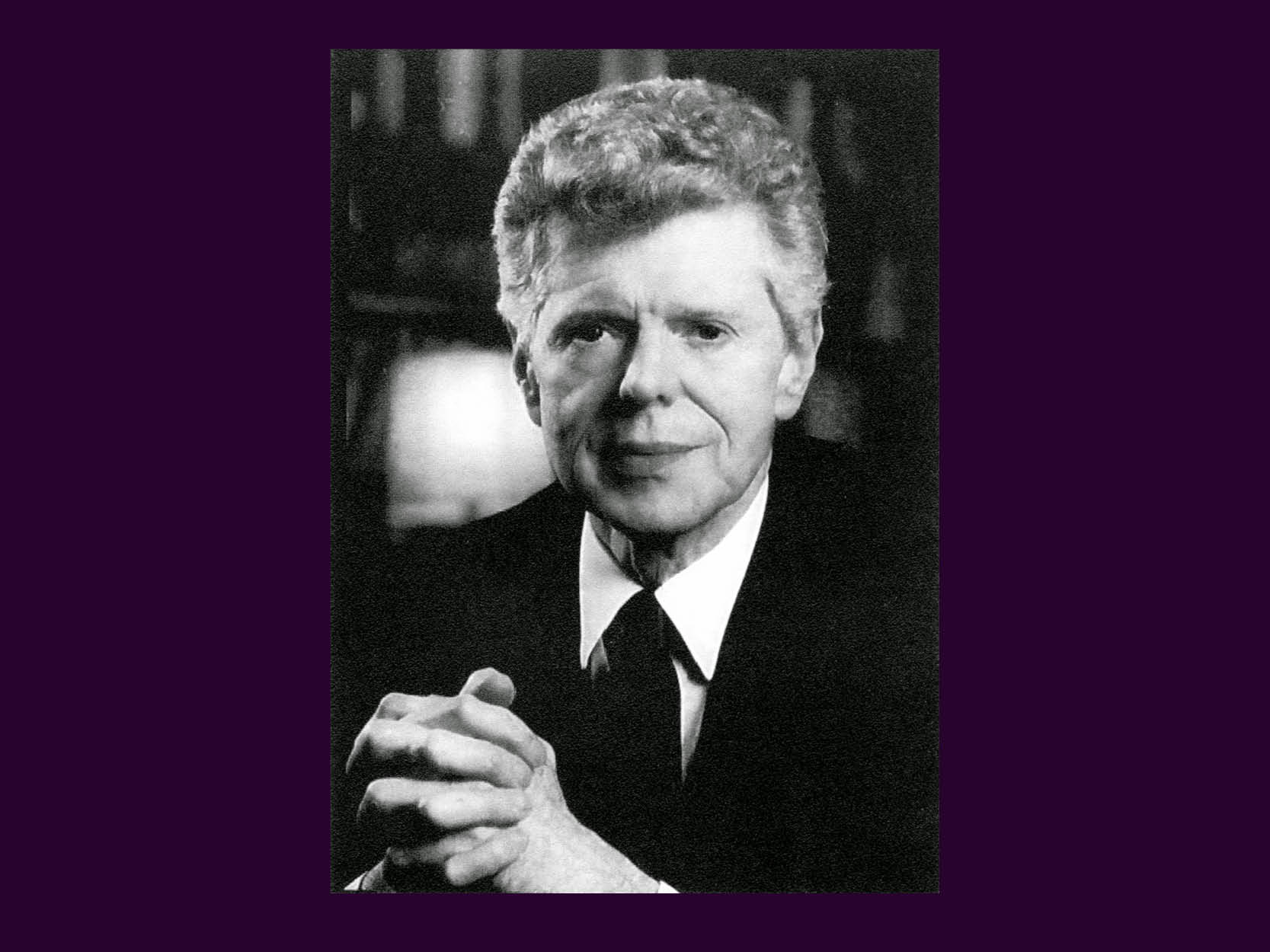
Van Cliburn dies age 78
After a long battle with bone cancer, Van Cliburn died on February 27, 2013. His funeral was held on March 3, 2013 at Broadway Baptist Church in Fort Worth, Texas. Among those in attendance were Texas Governor Rick Perry, President George W. Bush and First Lady Mrs. Laura Bush. Van's life was celebrated across the globe with tributes appearing in international newspapers and broadcasts. He was remembered not only for his great talent as a pianist and a cultural emissary, but also for his passion and commitment for bringing people together through great music.

